#interestingly i did not use a single lyric from the musical. but i used the heckin FOB song skskdhsksj
Text

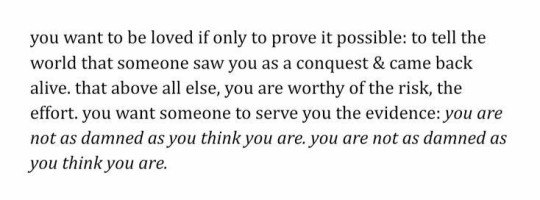

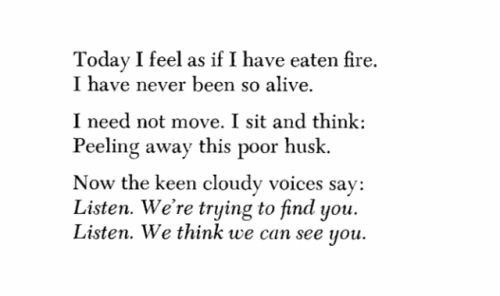
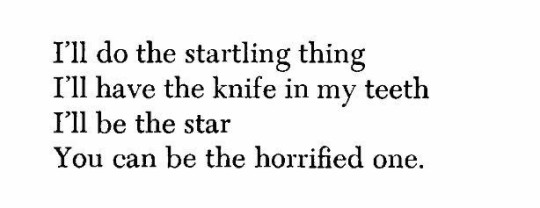

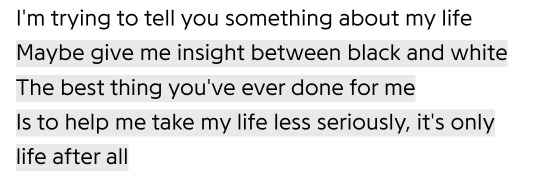

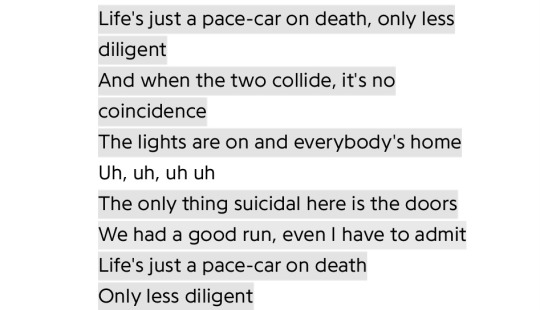

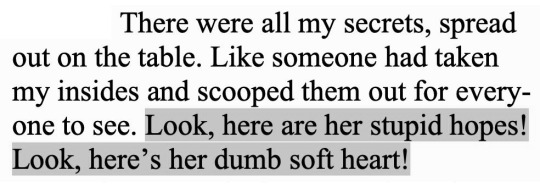

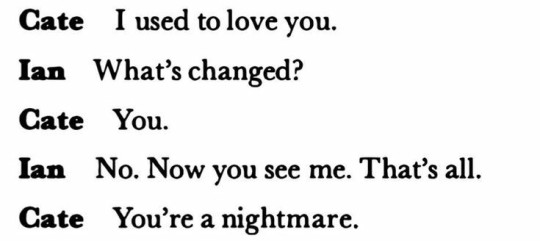
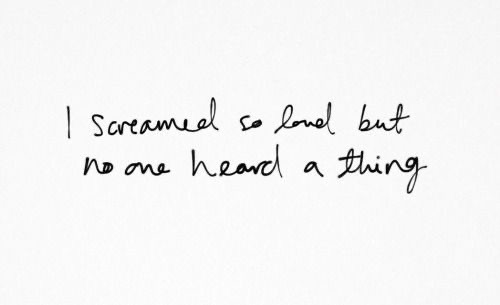

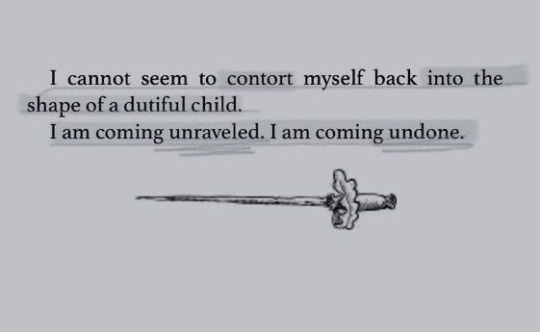


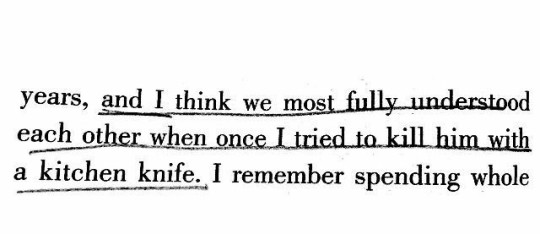

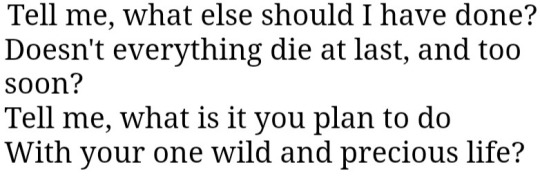
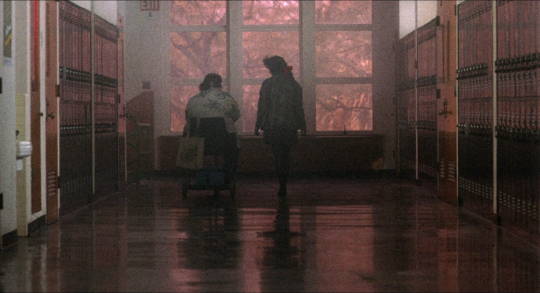
"I said, you're beautiful."
Heathers (1989), dir. Michael Lehmann // Love As An Act Of Merciful Conquer, Silas Denver Melvin // The Imaginary Lover: Poems, Alicia Ostriker // In the Twenty-fifth Year of Marriage, It Goes On, Alicia Ostriker // Closer To Fine, The Indigo Girls // She's My Winona, Fall Out Boy // Tell the Wolves I'm Home, Carol Rifka Brunt // Clean, Taylor Swift [via @lyricscity] // Blasted, Sarah Kane // The Cruel Prince, Holly Black // unknown author // South and West, Joan Didion // The Summer Day, Mary Oliver
#i think this is the first web weave I've made where i DIDN'T edit the lighting on the screencaps#which says a lot about either how well heathers is lit or how poorly the x files is. or both.#i just have a lot of feelings about veronica sawyer ok????#Lu rambles#web weaving#poetry compilation#heathers#heathers 1989#veronica sawyer#winona ryder#interestingly i did not use a single lyric from the musical. but i used the heckin FOB song skskdhsksj#uhhhh who do i know who likes this stuff#disco do you have a tracking tag???#usermulder#hiiii
126 notes
·
View notes
Text
I hate it when people say that Will being gay “came out of nowhere” or that him loving Mike “is forced”. The Duffers have literally hinted at this from the start of the show. It was heavily hinted between the scene with Hopper and Joyce in Season 1 Episode 1. Yet it apparently came out of nowhere.
Will’s bond with Mike has always been treated differently to the other friendships too, with more heart to hearts and important scenes. To quote Dustin for a second, “you can feel the electricity “. This has always been hinted at but more prominently in Season 3 and 4. Although, arguably, their strong bond was shown in Season 2 aswell.
The Duffers obviously care about this plotline of Will’s love for Mike as they keep including subtle references and clues. Let’s start with a clue in Season 3 Episode 8.
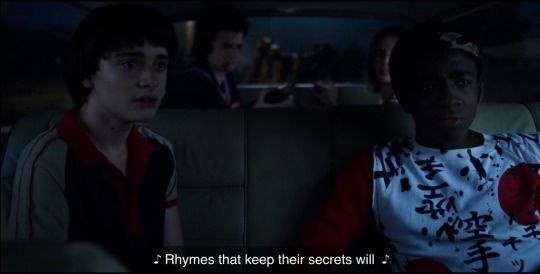
Here we are, the famous Neverending Story scene. Probably could be overlooked quite easily unless you pay attention really closely. But either way, it’s definitely there.
They decide to pan the camera to a shot of Will in the car, just as the lyrics “Rhymes that keep their secrets will” emerge. Interestingly too, “Will unfold upon the clouds” is the next line, however they left “will” on the end of the shot and subtitles. “Unfold beyond the clouds” starts once the camera changes to a new shot. Once again hinting at Will’s secrets that he’s keeping to himself, his love for Mike.
Onto another clue now from Season 2 Episode 9. This takes place in the Snowball scene where Will ends up dancing with the girl.

Wow, the Duffers do love their music clues don’t they? Once again, camera shots to Will dancing with a girl, but the camera only focuses primarily on Will’s expressions. This coincides with the lyrics “Every smile you fake”. Therefore, hinting at how he’s keeping up a fake appearance to fit in, when in actual fact he has feelings for Mike. I know one thing for sure, this takes a lot of work to line these scenes up, and editing the soundtrack to the correct timing. All of this for one single plot line too. Must be important!
In conclusion, the Duffers have clearly been adding small hints from the very start of the show, it’s always been there. This is so that the payoff is huge at the end and acts as a plot twist. Which is another reason they’ve kept it going until Season 5. These are just a few hints they’ve used throughout the show, there are many more. Just look at how much effort they went to in order to produce the van scene in Season 4. Overall, these plots did not appear “out of nowhere” and have been planned from the start.
#byler#will byers#mike wheeler#byler is endgame#byler season 4#stranger things 5#byler s4#byler theory
58 notes
·
View notes
Text
Gale Reviews: One Piece Film: Red
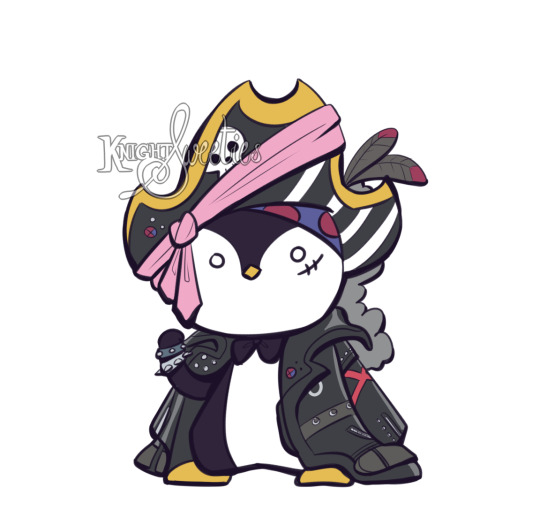
(Thanks @knightsweeties for the picture)
As this is long overdo let me break it down to how I will be breaking it down
Plot
Characters
Animation
Music (Because yes, the music is going to be a huge part in this)
Final Thoughts.
The Plot
HIT SINGING SENSATION UTA is having a concert, her first in person show and the whole world is tuning in. And just like all One Piece Movies, the Straw Hats are going there because it sounds like fun.
Uta sings her opening number and we find out that Uta is actually one of Luffy's childhood friends AND she is Shanks daughter! As in the Red Haired Pirates Shanks.
Things build up when the reveal that Uta has a devil fruit that teleports everyone into a dream world where she controls everything. Uta's plan was to bring the whole world into an era of freedom in this dreamworld by having her fans transported in.
Luffy is the first one to get bored of the idea when Uta tells him to quit being a pirate and enjoy the eternal show. Thats when we see the catastrophic event from Uta's world wide concert. The Navy, The Marines and even the red haired pirates are pulled into a race against the clock to stop Uta before she dooms the world by leaving everyone in her dream world.
But if thats not the worst part, the Tot Musica, a Demon king summoned by the Sing Sing fruit when the lyrics are sung has created a link between the physical and Dream world.
The strawhats must work with allies and enemies alike in order to stop this Demon king of song, and hopefully save Uta.
Now a LOT of this sounds like non-sense if one isnt a One Piece fan.
But the plot does do its best to let the audience follow along the best it can, but this film is meant for the fans, the ones that know one piece.
if you are a newbie with no clue who luffy is its a 5/10
If you are a one piece fan, than I would say 9/10. Because it is confusing timeline wise as well as some of the plot points kind of blending weirdly in the end.
The ending was emotional and it hits right in the heart.
__________________________________________________________
Characters
I think I will divide this section up into 4 categories.
Uta: She is the main Antagonist of this film, and while she is the one causing trouble, she did it with noble intentions. She is a Sympathetic and Tragic character. The film does a PHENOMINAL job making us see her backstory and why she is such an important character. They also integrate her near flawlessly into Shanks and Luffy's backstories. Though I think that they did a cop out when they said the Wake Shrooms were what was making her more crazy. I think they just wanted an out so they can say she wasnt seriously going to kill Luffy. Though if I heard my best friend saying he wanted to be king of Traitors and murderous monsters no matter how much I warned him, I think I would probably gone a bit nutty to. Also I wouldnt have had Uta see the clip of the destruction, there was no point to it, have her have flashes of what happen and realize the truth, would have been better. But that ending DESTROYED MY HEART.9/10
Luffy: Luffy is in top form in this film. You really sympathize with him and how far he is willing to go to save Uta. He doesnt want to hurt his friends, and whats fascinating is the entire time Luffy never threw a single punch at her. Luffy is all for smacking sense into his friends, but he also knows what she needed. I also love how Uta and Luffy both love freedom and we see their ideologies crash, Luffy being interestingly astute in pointing out that Uta isnt freeing anyone. 10/10
Shanks: I think Shanks still maintains his aura of mystery, but the movie does confirm that he and his crew are good guys, always prioritizing the lives of others and their crew. He even was willing to take blame for something that was a tragedy just to avoid having Uta feel guilty about it. Plus we got to see some cool moves from him and his crew. (I love his crew humbling kizaru.) 8/10
Everyone else: Everyone was in top form. Bartolameo was in peak simp mode, the strawhats all mastered their vibe and were in top form, each one getting a moment to shine, especially Ussop who got to coordinate observation Haki with his dad. It was a touching moment, I hope we get something like that in the manga.
The gorosei were creepy, St Charlos got treated like Garbage as he deserves (I wish he died). The Big mom Pirates from Brulee to Katakuri were great. Law and Bepo were fantastic (Bepo making me laugh the loudest) Solid 9/10
If one is a fan of the characters its and easy 9/10. But even if one isnt, their personalities are easy to read and follow along with. 8/10
______________________________________________________________
Animation
I am going to be honest, that was the most gorgeous film I have seen this year. The blend of 2d and CGI was done MASTERFULLY. The way the animation moved with Uta's songs. The animators went HAM on this. It is just unbelievably gorgeous. I wish I could describe it more than just absolutely breathtaking.
When New World and Backlight were being sung, Oh man was it incredible. And the final bout with the Tot Musica? STUNNING
easiest 10/10
___________________________________________________________
Music
I downloaded most of the songs after watching this.
Back light is my personal favorite but they are all FUCKING BOPS!
I was practically dancing in my seat, the song has HUGE CONCERT ENERGY.
10/10
___________________________________________________________
Final thoughts
This movie is an emotional roller coaster and stimulation experience that needs to be seen to be believed. I wouldnt call this a movie as more of a Love letter to the fans, one filled with imagery and love that could fill ones soul.
The emotional highs and lows connect. You FEEL what the audience feels, you understand Uta's pain, but you also understand everyone's motives for doing what they do in this film. It is an experience that left my eyes Red.
As a one piece fan, this is the best movie to date 10/10
As a critic 6/10 with 9/10 music videos. Because without knowing the series there is a lot that is confusing.
13 notes
·
View notes
Text
Day 22: Killer Queen from Sheer Heart Attack
Okay, I’m not lying when I say this has been my anthem far before I was a self-proclaimed “Queen Fan”. I swear, I used to rock out to this song: sassy, tongue-in-cheek, and (before I even knew what it was) queer!
This song is quintessential Queen, but moreover, quintessential *Freddie Mercury*. I think this is the moment when Freddie really lets that part of himself shine through. And I think there’s no way I can look at this song without noticing the queer undertones, but in such a genius way, Freddie can pull it off in 1974!
This iconic song starts with snapping, and that one sound will always conjure this song… in a way that makes you think it was always there, always in the zeitgeist of the early 70s. That’s the beauty of a particularly good song: it feels as though it is simultaneously the most innovative new thing in existence and also that it has always existed and could have never *not* existed.
Killer Queen, says Freddie, is about a “high class call girl” and he wanted to show that classy people can be whores too. I think any interviewer asking Freddie what his songs were about were going to get whatever came to the top of his head at that moment. I don’t think he was a Bono type who sat around poring over the minutiae of his lyrics and dwelling over their impact. That’s not to say that Freddie didn’t put his heart and soul and emotions into his lyrics. But in this case, I think this song is fun and—while it may very well be about a “high class call girl” or a critique on class itself—we should all create our own unique interpretations of what it means. Interestingly enough, Freddie wrote the lyrics to this song before the melody, which was the opposite of how he normally worked.
For me, it’s about a bad-ass person (I don’t think the word queen, nor the use of the pronoun ‘she’ necessarily indicates this is a woman…) who does what they want and is both posh and trashy in equal measure, both sweet and polite and also dynamite. I happen to think this Killer Queen could be Freddie himself. Fancy clothing, perfumes, champagne, “guaranteed to blow your mind…” Well, again, we shouldn’t think too much about it. I think we all have a Killer Queen in us, anyway.
As for the music—well, on the surface, this is a catchy little single that climbed to the charts (all the way to #2 in the UK and #12 in the US) and got Queen their first stint on Top of the Pops. Interestingly, Brian May was ill during the recording of this song, so the other band members assembled the song while leaving gaps for Brian to fill in later.
This song is hugely important for the legacy of Queen. It differentiated Queen from the other progressive rock bands of the time and launched them into a new sector, putting Freddie Mercury’s rock-theatre antics on center stage. It was a new sound, like nothing the general public had heard before. And I can only imagine that Freddie was like nothing they’d ever seen either.
This song is very much a pop-rock song. It’s smoother than the big heavy numbers that dominated rock and roll at the time. Of course, we still have the multi-tracking harmonies in full swing, and the panning of the music from left to right, and—even though he wasn’t there for all the recording—some really wonderful and imaginative sounds from Brian’s guitar. He used his wah pedal in this song, which creates a lovely glide.
Freddie’s voice is perfect in this because he can change it to fit the tone of the music and tell the story through the sound. The very first lines are so intriguing: “She keeps her Moet et Chandon in a pretty cabinet.” Wow, how many rock songs start like that? It’s soooo Freddie, and it captivates you entirely. “Let them eat cake, she says, just like Marie Antoinette…” Sooz Kempner, from the Queenpod podcast says “this song has a grubby decadence.”
The little “bell” sound is so iconic after “she never kept the same address”. I will always do my fingers like Freddie did in the video. Always. And, I always have a little cheeky smile when Freddie says “if you’re that way inclliiiined.” He adds so many cute, quirky, tongue-in-cheek additions, and the backing vocals pump it up.
I could go on and on and on about the lyrics, because they’re fucking amazing. But I do have to comment on the music. Even though I am not super knowledgeable about all the terminology of why this song just *hits*, I know it does. One thing I do notice is how Freddie’s voice goes into falsetto then back during one single line. Caviar and cigarettes– (goes into falsetto) well versed in etiquette (then he glides back to a deeper note) extraordinarily nice. Okay that was my novice interpretation of that, but I happen to know it’s beautifully and seamlessly done.
“Queen were very good at making complicated things sound simple and simple things sound complicated.” - Derek Shulman (from the band Gentle Giants)
It’s a perfect song and it will always be in my top five. Yes, I said it! My one critique is that I won’t ever be able to listen to Killer Queen for the first time ever again.
#Queen a Day#Queen band#Queen#Sheer Heart Attack album#Sheer Heart Attack#Killer Queen#Killer Queen song#Music Review#From a non musician
10 notes
·
View notes
Text
Happy New Year 2024!!
1/1/24: So here we are, the last New Year of this blog. I do intend to carry on after my 50th birthday in a couple weeks, but not after a long break... I've been doing this for free for six and a half years and I have other things I need to attend to. Regarding 1974, it's kind of a lousy year for both Pop and Rock... I think the Boomers just kinda gave up thinking and gave in to the lounge life, getting high, drunk, and everything in between... sort of a Disco mentality before Disco. Interestingly, it was quite the opposite year for film, with some of the greatest movies ever made coming out in 1974 (Blazing Saddles, Chinatown, Godfather Part II, etc.). Anyway, the MUSIC... like I said everyone seemed to be coasting: Zeppelin took a year off, as did The Who and Pink Floyd; the Stones put out maybe their first 'meh' record since the mid-1960s (when record companies were breaking up their records for maximum profit). McCartney was still riding high with Band on the Run, as was Black Sabbath with Sabbath, Bloody Sabbath... Prog in the UK was dying a prolonged death (whose sound began spawning imitators over in this hemisphere, most of which sucked pretty hard) as Yes would put out a lousy record and EL&P took three years off. The best stuff came from a lot of second tier artists: Blue Oyster Cult, Aerosmith, Grateful Dead, Joni Mitchell, Lynyrd Skynyrd, Queen, Roxy Music, Steely Dan, Neil Young, David Bowie (his last as Ziggy), ELO, and Budgie. Perhaps the best album of 1974 belongs to the British Prog-ish group Supertramp, whose third album Crime of the Century most certainly drew Dark Side of the Moon comparisons... a must listen, if you listen to anything from this year at all. Second best: BOC's Secret Treaties. Third best: Steely Dan's Pretzel Logic (not as good as Countdown but still excellent). Fourth best: Aerosmith Get Your Wings. Alex Chilton of Big Star would have quite a productive year as well, releasing one Big Star record (we'll do it) and creating tunes for another (that wouldn't be released until 1978). Some of the new kids on the block include: Rush, although this is before Neil Peart joins for their second album on drums and lyrics, so here you are dealing with mostly a Canadian Zeppelin copycat band (although 'Working Man' and 'In the Mood' are bona-fide Rock Classics); Bad Company, which is basically Free reborn with better production and was the first non-Zeppelin band on Swan Song records... tis okay; Kiss, whose legend speaks for itself; and the bassist for the Stones, Bill Wyman, with a surprisingly excellent solo debut, Monkey Grip. Some of my favorite songs from this year include 'Doraville' by the Atlanta Rhythm Section, 'In For the Kill' by Budgie, 'Dreamer' by Supertramp, 'Fingerprint File' by the Stones, 'Astral Man' by Nektar, '(theme from) Death Wish' by Herbie Hancock, and 'Feel Good' by Fancy (whose instrumental bridge was used on many '80s rap samples)... kind of a mish-mosh, eh? Perhaps the worst offender of 1974 was 'The Night Chicago Died' by Paper Lace... P.U.!!!... recommend you watch YouTuber Todd In the Shadows' take on this tune; 'You're Having My Baby' by Paul Anka is a close second in disgraceful tunes. This year we hear perhaps the first true Disco singles, including 'The Hustle' by Van McCoy, 'Pick Up the Pieces' by the Average White Band, 'Machine Gun' by the Commodores, and 'TSOP' by MFSB. Also, more proto-Punk and just overall weirdness by the likes of the New York Dolls, Sparks, and the Residents. I could go on and on... it's like the malaise President Jimmy Carter spoke about later in the decade kinda starts here, particularly with the economy (first real recession since late 1950s) and politics (see: Nixon, Richard... Watergate). The year also spawns some of the most ridiculous fashion of the era, as well as very long hair for mainstream men and mustaches... lots of mustaches, which men really hadn't worn stylishly since the late 1940s (even then they were very thin... see Walt Disney). Okay out of space... enjoy!
0 notes
Text
Music Videos & Silent Films (80's Edition)
Through my countless YouTube clicks and scrolling on community sites, the amount of music videos inspired by silent films during the 80s is very little. Even so, the few I did find are timeless gems.
"Drop the Pilot" by Joan Armatrading
youtube
Released in 1983, "Drop the Pilot" is a fun music video with an original silent film plot. On my initial watch, I assumed the silent film bits were clips extracted from other works out of copyright. It begins with a traditional silent film title card introducing the three actors. The band and singer are on the stage, the silent film playing in the background and the theatre is packed. This choice alludes to traditional silent film screenings and how they would often be accompanied by live music. As the film begins playing, the story unfolds into one of love and jealousy. Our main girl is not interested in the soccer player, instead, she is entranced by a pilot caught in the trees. However, as the music video plays out, the soccer player breaks off the date between the pilot and his girl. Interestingly, the pilot breaks the fourth wall by literally jumping through the screen at the back of the band's stage. He then makes his way to a girl in the audience who has been admiring the actor's performance and wishing he was real. Luckily for her, he is. Although I have never heard of this song before this project, it is very endearing to see musicians create music videos with original silent film content, especially in the 80s. I wish I could have found more information about the creative process of his production but the song appears to be a one-hit wonder with little to no information. Despite this, I am glad it exists in web spaces.
2. "Radio Gaga" by Queen
youtube
Turning to one of the most well-known and loved groups of the 80s, Queen, they too dived into silent film. Their music video for "Radio Gaga" is a clear nod to the critically acclaimed German Expressionist sci-fi silent film Metropolis (1927). While the music video includes footage from the film, Freddie and Co. are seen traveling through Metropolis (inside a radio); preparing to perform for the underground workers. The music video, like the film, expresses sociopolitical issues. Particularly the need for people to listen to others rather than focus on solely the visuals. Doing so only narrows your perspective of the world. This is best represented by the father turning off the radio as Queen sings the chorus. In retrospect, this discussion is contradicting. It is a music video centered on a silent film trying to relay the lyrical message that listening to others is essential. Mayhaps I am misreading the message, but that is what makes this project so neat: trying to wrap my head around the possible messages Queen is conveying with a stellar film choice.
3. "Express Yourself" by Madonna
youtube
Like Queen, Madonna uses Metropolis as its point of inspiration for her single 1989 single, "Express Yourself". Straying away from Queen's sociopolitical message, Madonna takes a female-empowering approach. Madonna assumes the role of a powerful city leader with a masochist lifestyle. Lyrically she is encouraging female viewers to never settle for a man that approaches them; as a woman pick the man you want. This message is relayed visually in the video with the underground male laborers. All men are the same until they differentiate themselves by "expressing themselves". In retrospect, this does relate to Metropolis thematically. In the film, the underground workers are encouraged by a woman (Maria) to speak up for themselves and against the tyranny they have been subjected to. Regardless, at the end of the film, the nod to Metropolis is made clear with an ending title card reminiscent of the one in the original film.

(ending title card for Madonna's music video)

(ending title card for Metropolis)
For such big musicians like Queen and Madonna to focus on Metropolis in their music videos (within the same decade) must have reeled the interest of many fans to look into the silent film. More so, it highlights how timeless silent films can be and universally versatile in thematic interpretation to fit songs.
0 notes
Text
LT2 masterpost
If it was up to me, we would get an autumn or winter EP. Since it’s not up to me at all, here, enjoy this post with everything we know so far of LT2, which is to say, not much at all. Everything here is hypothetical. I’ll be updating every time I see something relevant. A little disclaimer that while this is a masterpost (kinda), it could be read as discourse (duh, it’s also a theory), AND it’s also by me, and you shouldn’t expect me to be serious at this point.
Due to me restraining myself, there’s no reference to any of the times he’s mentioned his guitar skills and him improving but I hope you know I cried every single time.
I’m also linking my old pinned here. It was written before AFHF and around the free merch thing that didn’t lead to much, but I still think I made some good points.
Possible tracks:
Copy of a Copy of a Copy
Change
Faith in the future??
369??
Possible names:
369
Faith in the future
When is the album coming out?
Your guess is as good as mine
Friday 28th of January 2022. Almost two years after Walls. It’s a Friday. It’s a 28th. What else can I say?
Here you can find @want-to-be-loved timelines for every month.
Here you can find @berlinini’s timeline of what Louis has been up to this year (2021).
The rest is under the cut. And here you can find a PDF version where Tumblr can't tell me how many pictures I can add.
2020
He said back on May 2th 2020 he wasn’t writing anything new yet.

(x)(x)(x)
Interestingly enough, he’s said many times after that that the album’s not ready cause he has no new experiences to drawn from. I won’t call him out because he does it himself.
May 4th. He liked a tweet from DMA’s Johnny Took saying they had to go write together again. Louis has been credited as an influence for them and (kind of) participated in their previous record, so I’m assuming he meant for their music and not his, but you never know.
Nothing(literally nothing??? how did we survive) until 11th of July. We all know what happened that day. We all celebrated it. Nonetheless, that’s not what I’m talking about here.
(x) So, by the beginning of July 2020 he was working on concepts and ideas for the new album. That was fifteen months ago. I know perfection takes time but…
Brief summary of important things that happened from then until the next mention of new music:
Louis left Syco!!!! 10 days later he rescheduled the tour for the first time. He followed Matt Vines on Twitter, probably so we could publicly shame him into doing something. Also, the 10thanniversary. He followed more people I wish he hadn’t.
Then more nothing until September. Not even a single tweet. The first merch drop was on the 28th of August but he just RT’ed the tweet. He first mentioned Free my Meal on the 25th of September. Then on October 1st Walls hit #1 on a lot of countries and Louis was incredibly happy and excited about it ^^
And then, that same day, October 1st, 2020, he dropped this bomb:
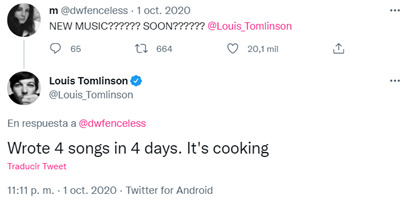
(x)
He also said it was too soon to be sharing new lyrics with us (x)
And, obviously, this tweet which is actually what made me start this whole post. I would hope you know mate.

(x)
He also told us he was cooking "banger after banger" and that he was incorporating more social themes into his music (x)(x) (I believe any social issue is a political issue but that’s not the point rn).
COPY OF A COPY OF A COPY?!?!
These next paragraphs are brought to you by my mind not remembering things and me not having any links. I’m assuming COACOAC came from those writing sessions that supposedly happened in October. Or in LA but I have no idea if he actually was in LA at any point other than a Daily Mail article putting him there on December which would have been too late, but I do remember that someone said he was in the studio in LA last autumn???? A rumor. Maybe. IDK. Did I mention already all of this is very hypothetical?? Well, this is it. I can’t even remember if this was October or November or what. So, take this with a grain of salt.
I’m also… taking the liberty to assume, if you must, that Copy wasn’t meant to be a Walls reject because it sounds more mature and darker and it has a vastly different tone that Walls songs. I know he’s said that song probably isn’t getting into the album, but I want to have faith (in the future) that I’m getting a studio version. (But also, Louis, if you’re reading this, first of all GET OUT OF MY BLOG second of all, please don’t ever feel pressured again to add a song to the album because we have already heard it before. It’s your art and it should always be under your own terms).
So yeah, I believe that Copy is either one of those four songs (then imagine the other three??!!) or was written around the 1st of October date.
---End of the Intermission---
Then not much important (other than sharing more about Marcus Rashford fight against food poverty and the 2nd merch drop) until he announced the livestream on the 24th of November. (x)
It wasn’t until a few days before the livestream date we even thought again about new music (jk, I know we’re always thinking about new Louis’ music). So, December 9th/10th, 2020. Nine months ago. We got our first taste of new music!
He made sure we knew Copy of a Copy of a Copy isn't a cover! (x) (x)
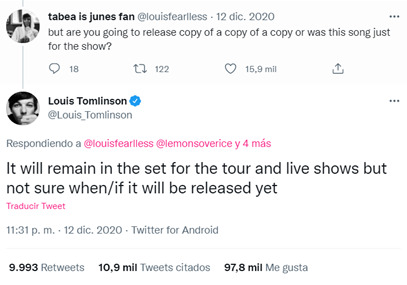
(x)
Ok, so that’s it for 2020. (I feel like I’m missing something from September 17th because tweet was deleted but maybe he was still talking about cucumbers. We might never know. Unless I understand how Tumblr tags work). Expected, cause Walls was released in 2020. We needed to let it sit for a while.
2021
Another Summary: Louis third tweet of the year was telling the UK government off. So was the fifth. What a good beginning. On the 26th of January, he said he prefers pancakes over waffles. I hope he meant pancakes other than his own. More importantly, he tweeted the infamous “you lot read into things too much”. Don’t get me started, Tomlinson. Don’t. Then the 31st came around and Walls was one. He tweeted this. How wise. And Project Defenceless happened!!
15th of February!! Who cares about Valentine Day when the next day we got this? ♥

(x)
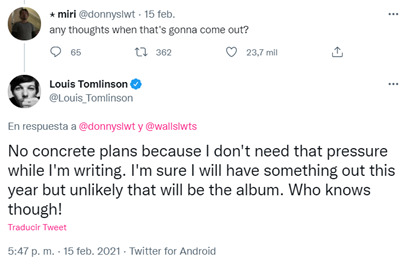
(x)
So…AN EP?? AN EP?? PLEASE RELEASE AN EP.
“I’m sure I will have something out this year but unlikely that will be the album”. Unlikely but not impossible. Also. A single would be good. This is the second time he mentions releasing something in 2021 and he sounds surer about it than the first time around.
He also said that he isn’t sure we will get a studio version of Copy. And that the best bridges from Walls to LT2 are Walls, OTB, KMM and Copy. Can’t wait!
Then we jump to March 6th when he announced he was going to create his own management company. “Sometimes action is needed first to encourage the motivation and belief”. As we can tell he was already manifesting some stuff which will lead us to the numerology stuff/Tesla… kidding. Or not. We might never know.
On the 22nd of March he answered some questions:
He told us music was still his main focus ♥ mwha. (x) I included this tweet to guilt-trip him into giving us music in case he’s reading this even after I told him to leave. ILY.
(x) I’d love to get a visual EP this autumn. Just saying. It sounds like a lovely concept.
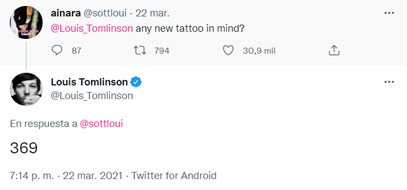
(x)
…next (I will get into it, I promise. I’m just mad).
On the 25th he left for Mexico until April 10th. You could assume it was just for the documentary where we got ten seconds of footage or admit the obvious: LT2 its a Mexican baby!!
On the 26th (so, not so far apart from that first 369) we got the first Faith in the Future mention: (x)
Back then we were innocent people who had no idea what was coming upon us. We still have no idea because what the fuck does he mean with these. Please explain. I have one braincell and I don’t use it enough for this. I’m linking some theories.
On the 30th of March he confirmed he was already working on the documentary. So AFHF was already on the works. Will it take this long for us to get the Veeps numbers? We also got this tweet: "Got a decent chorus idea down" (x).
Same person that got the “something out this year” exclusive. If you know something share with the class. Also. Is this Change? I feel like this could be Change but I also assume he wrote Change after hanging out with his friends or being in Doncaster. But who knows.
(x) And the second mention to 369.
(x) 15th of April. The second "Faith in the future".
On the 19th of April he announced that he had something BIG for us later on the year which turned out to be the Away From Home Festival ♥♥ (x) I love him so much.
Then on the 28th he announced the 369 merch drop (which it’s probably the Walls drop? Except that the TOU and KMM ones were “drop 1 and drop 2” and this was drop 369 which, again, makes no sense) but we still don’t know what 369 means.
Into May’ 21 we go.
He rescheduled tour again. And dropped another bomb (x).
He announced he has signed with BMG as an independent artist by RTing this tweet on May 10th. The article also says that he’s already working on writing and recording LT2. The timing… we don’t know. What this deal involves… we don’t know either. Bear with me here because I have a lot to say about this.
I think the deal is only a distribution one, but that BMG are interested in Louis and what he (us) could bring to the table. They were either present at the festival or watching it, but officially they had no involvement at all with it (everything is credited either to Louis own company, 78 Productions, or Charlie Lightening’s company). That’s the case for both giveaways too; the vinyl one and the tickets for the festival.
I think it would be an unbelievably bad move not to test the waters with BMG now or soon-ish. At least a single, to see how it performs. Due to the circumstances, it’s obvious there’re certain limitations on place but I want to see how they push it, whether the radio play exist this time around and if the song is playlisted and promoted and all that… I would also love to know, since it says he signed with BMG UK, but it also states it’s a global deal, how things are going to go on the US and other countries.
Yes, yes. I know those are all questions and no answers. But I know the same as you, sadly. If any of you know more than you’re letting on… again, share with the class.
Where was I? Yes, on the 25th of May Louis had a great day writing (x). Since the first time he had mentioned he was officially writing to this date there’s almost eight months. And I believe he was writing before October’ 20.
He followed Robert Harvey that day and, on the 28th of May (why is it always the 28th???) he was spotted at the studio for the first time.
June was an interesting month for the fandom ♥. Lots of LHL content which I will love and cherish for the rest of times. On June 4th, June 9th, and June 10th he was spotted at the studio, but I believe he was there more days.
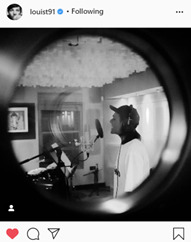
(x)
This was posted on June 6th and captioned Studio. Charlie also shared it with “Mega tunes being put down, can’t wait for this @louist91 #louistomlinson #LT2” as the caption. This gives me 2019 (Elton-Joint) vibes. I like it. Feels like we’re getting closer to something.
He added the Milano date on the 9th too which I’m mentioning because I’m going alone. Anyone wanna go with me please? I’m nice and I never eat anything before a concert so you can have my food. On other news. It didn’t come home.
During July he was at the studio at least three days too. Probably more. Feels like more with all the fan pictures we got. Or was that June? Anyway, July 1st and 9th we got some videos from Robert Harvey and wearesuperhi, which is who Louis has been working with the most, that we know of. I don’t know for sure they’re from that day. And on July 5th we got an article and lots of pictures of Louis looking really good outside the studio.
On the 12th of July the first fans started getting the free, 369 bucket hat and print. We still don’t know what the purpose was other than to thanks fans. Maybe that was it. I want answers and I still think it relates to a future project (see theories above), but it could also just be a bridge with the Walls breaking.
He didn’t tweet about anything interesting for a while, mostly because he lost his phone (he either throwed it in the air or smashed it who knows). Then on the 29th of July he announced the festival!
I’m glossing over it because there’s already been a lot of talk about it (rightfully) and while it was a wonderful thing, it doesn’t have much to do with LT2.
Let’s talk Change!
On August 3rd he tweeted this about the setlist.
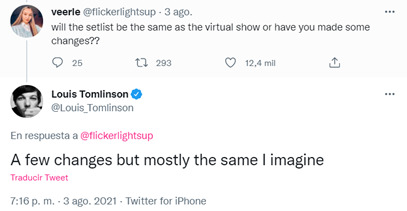
(x)
And this (x) on the 28th! I can’t stand him.
We didn’t get it, obviously. Because who was going to get that. But we read too much into things. Alright.
On the 16thof August Dave Gibson shared this post tagged #LT2 with the eyes emojis 👀👀👀. I believe this has to do both with Change but also with whatever else came out of that Mexico trip.
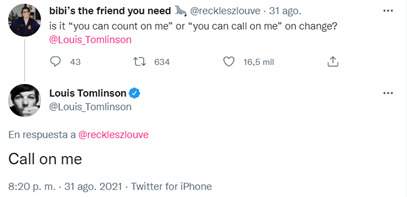
(x) Last relevant tweet related to LT2 is this one.
So, on the 30th of August we got Change and we cried, and we know that Change is going in the new album. He said it. With those exact words. He also said he was “getting a feeling for it”. This has to meant he already has a general idea of the vibe of the new album and what’s going in it!!!!!! (Right? RIGHT?).
Anyway, let’s go back a few weeks because some other things happened on August. He was at the studio a few more times. Or it was suggested that he was there. On the 17th and the 18th. (Why was it so time-pressing to be at the studio instead of rehearsing for the festival? There was no studio at all on the documentary. Which makes sense, but again, then why?).
On the day of the festival we got another mention of Faith in The Future that made me feel part of a cult ngl. The words were flashing on the screen for less than a second. Okay.
And then he tweeted those words again after watching the livestream/documentary on the 4th of September (x). This is what makes me suspect it's either the name of the album or of the single.
On the same day, we got some interesting quotes about LT2 on the documentary.
“Soon I’ll have to think about me second album, which in my head I’ll get the tour out of the way and then I’ll address that. So, I hadn’t really given it much thought, to be honest”.
“When every day is the same is hard to feel creative and it’s hard to have any kind of proper inspiration”.
“As season started to come back, I started writing again and it was great and some of these songs turned out alright”.
And I think this is it. I might be overlooking some important details but that’s what we know and what we don’t know.
So. Conclusions. That’s what you missed on Glee. I do believe the album is, if not mostly done, partially there. And yes, this post is pointless and never-ending but it’s all in here if you need to tell Louis “Hey, you said this, mate”.
#LT2#Louis Tomlinson#Faith in The future#369#Louis#LT#new music#idk what this is#but it's long#pinned
90 notes
·
View notes
Text
Comparing the original Best Partner character song series and the new one, and what that says about the 02 cast
youtube
So if you haven’t heard yet, a new series of 02 (it’s actually Kizuna) character songs dropped! Allegedly intended as a slightly delayed 20th anniversary project, the series is a callback to the original “Best Partner” character song album series that released during 02′s actual airing.
If you know anything about the original Best Partner series, it’s one that sets an insanely high bar, even for Digimon standards (and that’s saying something, given the deep associations this franchise has with music). The series of character songs before it, Adventure’s “Character Song + Mini Drama” series, has a…kind of questionable amount of relevance to each character; it’s not like they’re super amazingly out of character, but they don’t really tell you a lot about each character beyond some gloss details (this is probably best demonstrated in how Mimi’s song is blatantly just an AiM single disguised as a Mimi song). Best Partner, on the other hand, very intimately goes into each character’s head and their relationships with their respective partners, even putting in direct words what wasn’t stated explicitly in the series.
So does the new series live up to the high bar its predecessor sets? Answer: on top of some abnormal attention to detail on the covers, it is very obvious that the new series not only has a lot of the depth of the 02 characters in mind, but also is made in direct response to the original series itself. Moreover, putting the original Best Partner series and this one side by side reveals a lot about each of the 02 characters and what they got out of 02′s story, in a surprisingly neat summary.
Let’s go into how!
Since this is something that has a deep relationship with all of these characters in regards to the series, this particular meta would not have been possible without input from multiple people who know these characters better than I could ever hope to by myself. Thank you for all of your help.
A bit of historical context
The original Best Partner series consisted of a set of albums, one representing each pair of partners in 02. Notably, even though nowadays there’s a specific order of the Adventure/02 characters that’s used in modern media, not only does the original series not follow that ordering (as it hadn’t been set in stone at the time), it also leads with the original Adventure characters and not the 02 ones, which is pretty unusual for a series that’s ostensibly supposed to be for 02 (modern lineups will usually favor leading with whichever group the relevant product is branded with).
A lot of this probably makes more sense when you realize that the original Best Partner series was released during the first half of 02’s airing. The final album was released on August 23, 2000, four days before the fateful 02 episode 21 (yes, that means the third track on Ken and Wormmon’s album is actually a spoiler). So in other words, while the original Best Partner series accurately reflects the older Adventure group’s character development and what problems they were able to sufficiently overcome, the 02 group does not have anything about their character development from 02′s second half reflected in it at all.
That’s actually a really huge disparity, when you think about it, especially because a lot happened with the 02 group in that second half – that second half was where the emotional payoff and the results of everything that had been building up over that first half came together. So in comparison to the Adventure group, composed of people confidently talking about what they’ve decided for themselves from now on, you still have the 02 group drenched pretty deeply in insecurity. Watch 02 to the end and listen to those songs again, and you might even think “wait, this is supposed to represent these characters?” So, in essence, the new Best Partner series serves to address that gap, and what the 02 group gained and learned out of 02′s second half.
Best Partner (and its successor series for Tamers, Best Tamers) follows a uniform format: a solo song for the human partner, a solo song for the Digimon partner, and a duet between the two. (Given that, the original Best Partner series was really huge, at a whole 36 songs.) Recalling that, in the Adventure universe, a Digimon partner reflects the human’s inner self and psyche, it’s pretty extensive coverage: what the human has to say about themself, what place their Digimon partner is in relative to that, and what the nature of their relationship is due to that.
Let’s go into each pair of partners in detail!
Daisuke and V-mon
For those who love 02 and love Daisuke in particular, when you ask “what kind of character is Daisuke like?” or “what’s Daisuke’s best quality?”, you’re probably going to get answers like “forward-thinking” or “positive” or “good at uplifting others” – basically everything to do with how Daisuke is an encouraging presence who doesn’t give in easily and has a strong mentality of moving forward in the face of despair. Someone who appreciates and understands others’ best qualities, and loves them for everything they are. So when you look at his original Best Partner solo song, Goggle Boy…
But more than just saving the world
I really don’t want to lose, you know
…Uh…
These goggles are my proof
Given by a certain someone to me
The precious thing he handed over
It’s just like his Crest, you know
Aren’t they cool?
…Well, that’s nowhere to be found.
This is the kind of song that might make you think “wait, this is supposed to be Daisuke’s representative song?!” (It’s possibly because of this that Daisuke’s song from The Bridge to Dreams, Tomorrow, generally tended to be far more favored among Daisuke fans, although it’s more relevant to 02 as a whole than it is to Daisuke in particular.) if you listen to Goggle Boy knowing about what Daisuke’s best qualities should be, this is almost a little frustrating, because this is the kind of thing he really shouldn’t be pigeonholed as – basically, begging for others’ approval and praise and focusing on idolizing others. Even his most insightful moments in this song come from his appreciation of something that came from someone else (Taichi), not from himself.
Well, the thing is, that was Daisuke’s character for most of the first half of 02. Of course, even in early episodes, there were many times where Daisuke’s potential for positivity and forward-thinkingness were starting to poke through, but most of the time he was rolling over trying to please others and chasing after his seniors. The real period of time he started to grow into his own about this was 02 episode 24 and its aftermath – when his time spent with his friends started to fill the void in his life and his need for validation, and the escalating situation, especially with Ken, led him to have a proper grasp of what was properly important and what needed to be done.
So when we get to his new solo, RUNNING MAN…
I’ll keep on running far ahead
Let’s bring everyone along with me, today, too
Really, always, thank you, Thank you so much
Riding the wind, going past the sky
Grasping your hands and flying
I’m even starting to see beyond my dreams
Even in only one section, you can get an instant image of the Motomiya Daisuke we all know and love – someone who appreciates his friends’ role in his life, loves their company, and moves positively towards the future. Because, again, after the events of 02, and after being able to bond further with his friends and gaining his own strengths in leading everyone forward, he became able to more properly express his love for everything instead of constantly vying for others’ attention. Even the title reflects the change, from a “boy” who’s flashing the symbol of courage he got from someone else, to a “man” who’s positively running forward on his own merits.
(Interestingly, RUNNING MAN is composed by Ohta Michihiko, a legendary composer who’s made many of some of the most important songs in the franchise, and also composed many of the original Best Partner songs, including Goggle Boy. It’s interesting how RUNNING MAN is the one most like the original songs in atmosphere as a result – possibly representing how Daisuke is a simple-minded person who ostensibly doesn’t change drastically in disposition – yet has lyrical content that’s so starkly different.)
As a result, this is subtly reflected in the other two songs in each album as well – remember that V-mon is one of the partners who most “matches” his own partner in terms of disposition and mentality. So as Daisuke shifted his own priorities, V-mon did too; we go from Go Ahead! being about taking a stand and fighting, whereas Beyond the Future is about a similar forward-thinking mentality to Daisuke’s.
Likewise, the duets have different priorities as well; 2-TOP was composed of Daisuke and V-mon bickering for the most of it, and the most substantial point you could get about it was that despite their bickering, they made it work, whereas HEY-rasshai! has them almost entirely in sync (with one minor moment of deviance). It’s also interesting to see the topics covered in each; 2-TOP is about soccer, which ultimately is revealed to be a fairly incidental hobby for Daisuke, whereas HEY-rasshai! is about ramen making, which, while comical, also has a very strong tie to “Daisuke’s dream for the future, and his willingness to single-mindedly dedicate himself to something when it’s something he truly wants”. In other words, while Daisuke knew what he wanted since elementary school, it says a lot that he’s at a point where he and V-mon are now taking proactive steps to have that dream achieved, now that they’re able.
Ken and Wormmon
Like with his position in 02 itself, Ken’s is probably the easiest to see the contrast without trying too hard, but there’s still quite a lot to unpack!
When you think about it, in the modern era, it’s actually surprisingly hard to find stuff too relevant to Ken’s time as the Kaiser. The reason is, simply, that the series itself discourages this – Ken himself had an obvious aversion to dwelling too much on it, and the entire series itself has a strong theme of “moving on”. It’s not to say that the Kaiser doesn’t have a fanbase (I’m sorry if you’re reading this and find that I might be implying too hard that you don’t exist), but rather that there’s a franchise and fanart tendency to focus more on “Ken-chan” than “the Kaiser” these days, and old merch from the first half of the series will all too often get responses of “it’s really sad Ken-chan can’t be there…” Of course, 02 itself was also about accepting one’s mistakes, not pretending they never happened, so it’d be foolhardy to deny Ken’s dark history entirely, but it’s retroactively interesting to see such a prominent and persistent piece of merch like Ken and Wormmon’s original Best Partner album focus so largely on Ken’s time as the Kaiser when most of the franchise ended up trying to move on.
Starting with Ken’s solo songs, and his first one, ONLY ONE:
I’ve lived without showing my true feelings, wearing this mask
Well, this was easy to tell from the series itself, but the point driven home is that Ken didn’t want to expose his true self to others, putting on a front of “strength” and smashing his true feelings into the corner so that he could become more of the “perfect” person he thought he was supposed to be. There’s also another interesting line that one should pay attention to:
I polished the knife in my heart
and put my belief in infinite power
Basically, putting up a defensive front to prevent anything from approaching his weaknesses.
Anyway, moving onto his new song, Never Ending:
If I want to be proud of tomorrow’s version of myself
I wonder, what can I do? Never Give-up
I’ll keep fighting, even doing someone else’s part
No, I won’t be afraid anymore
First of all, the main theme of the song is about putting conscious thought into understanding how to stay true to himself – basically, understanding what it is he really wants to do and become, instead of putting on fronts and hiding it from others. Not only that, we see traces of what exactly he gained over the course of the second half of 02 – because so much of it involved constantly trying to blame himself for everything, this song is about what he came to learn in terms of proactively making it up and actively fighting forward. He’s working hard!
We also have this part:
The knife that’s pointed at someone, or at myself
If it’s been let go of
Two things going on here: firstly, we have an explicit reference to the metaphorical “knife” Ken referred to putting up in ONLY ONE, talking about finally letting it go instead of bothering with this kind of front. He also points out that, in a sense, the knife was pointed at himself too, either in the sense of actually having hurt himself through this entire ideal, or in the sense that he constantly was trying to blame and punish himself for everything. None of that should be necessary anymore. Moreover, Never Ending contains a lot of references to “daily life” and the happiness that comes with the simplicity of just being alive – because that was indeed what Ken gained through his experiences, the ability to treasure living life in itself instead of aspiring to an impossible standard.
Another interesting thing about Never Ending is that it’s technically in a similar rock genre to ONLY ONE instead of being “soft”, like Ken’s personality is often thought to be. This was a surprise to a lot of people who commented on how surprisingly “cool” the song was, but this is actually completely in line with Ken arguably being one of the most openly assertive people in this group even after his reformation. Note that it’s very difficult to call this song purely angsty – it’s definitely positive and forward-thinking, and the chorus itself is partially in major key – but it has the vibe of someone who’s fully aware of everything that’s happened, is putting proper thought into it, and is pushing on despite everything. Remember, the intensity the Kaiser had originally came from somewhere; Ichijouji Ken is the same person, in the end.
In regards to Wormmon’s song, the contrast is also obvious: The Future You Dreamed of, the Future I Dreamed Of. is of course about Wormmon’s tormented feelings during the Kaiser’s abusive relationship with him, whereas can change it! is about its aftermath and how they made up (including copious references to the events of 02 episode 23). Even then, there’s a certain “forward-thinking” attitude that marks this song as being representative of being after 02’s events and not during – see the line “The mistake we made that day/is exactly the reason we’ll never let it happen again”, instead of the self-punishment and shame Stingmon expressed in 02 episode 26).
On top of that, the duet song Forever Adolescence also marks a subtle progression from the point they were at from True Strength – remembering that Best Partner 12 was released at a time when True Strength was actually a bit of a spoiler, while Ken and Wormmon obviously had made up by that point, the key line in it is still “everything truly begins from here”. So what, exactly, happened after that? According to Forever Adolescence, the decision made was to keep moving forward, and, moreover, to stay “the way they are”, especially with the nuance that it means it’s okay to not force oneself into the role of an adult and stay “young at heart”. This is really, really important in light of the events of Kizuna, the 02 group’s unusual role in it and its relevance to 02′s themes (more on this below), and how Spring 2003 referred to the pressure placed on Osamu as him being “forced to grow up too quickly” – in essence, Ken and Wormmon have firmly resolved to actively move away from that kind of pressure.
Miyako and Hawkmon
I’ve pointed out several times on this blog that the actual complex Miyako was going through in 02 was that she hated herself more than anyone else in the group would be willing to criticize her – and if you don’t believe me, it’s put in a pretty heavy-handed manner in her original song, Crash and Bingo!:
Fussing about it won’t get anything done
But my selfishness and problems and panic keep coming out
…and even more viciously in her own and Hawkmon’s duet, Fly High:
I can’t do anything right, besides playing around with computers
or
Everyone would be still be fine if I weren’t there
If you thought it was subtle in the main series, it certainly isn’t here: Miyako considered herself good for absolutely nothing and unable to be accepted by others for being too useless – in these songs, despite Hawkmon’s attempts to uplift her, she criticizes her own messy tendencies and considers herself a burden. Best Partner is a positive series, so it still has the attitude of “we’ll try anyway”, but it’s clear that Miyako really didn’t have the highest opinion of herself at all. Hence, Fly High also shows off the worst of Hawkmon having to deal with the fallout – with Miyako flailing around in panic and considering herself good for nothing, he’s forced to carry her around.
But come Miyako’s new solo, From Spain with Love!, we see a huge contrast all over the place:
I, who have evolved into an adult
make everyone do a double-take at me when I walk by!
Exhibit A: actual confidence in herself and ability to consider herself worth something;
If I can always, always be honest with myself
Even if I don’t put together some program, even if I keep screwing up
Ah, you understand me
Exhibit B: understanding that she’s worth something to others besides her utility abilities, and knowing that she has friends who’ll support her despite her flaws (which is very true);
When things are feeling hard, the first thing you should do is call me, okay?
I’ll take the wings of love and purity, spread them, and get there as fast as I can
Ah, I’ll open up any gate I need to
Exhibit C: indulging in her capacity for helping and supporting others;
Al mal tiempo, buena cara
We laugh exactly when things are hard
Exhibit D: understanding the strength to get through hard times, instead of emotionally crumbling under the pressure.
Yep, that’s exactly what her character arc in 02 was about; 02 episode 31 was a huge turning point for her because, in the depths of her berating herself for her messiness and expecting Hikari to be secretly judging her the whole time, Hikari revealed that she was outright jealous of Miyako being able to speak her mind, and Miyako shortly after ended up showing her true capacity for reaching others who needed her help and supporting them, a role she ended up growing into for the rest of the series. Note that, other than the casual remark of confidence at the beginning, Miyako hasn’t necessarily become arrogant or anything – it’s just that, by focusing her energies into how much she loves everyone and turning her “nosiness” and “sticking herself into others’ business” tendencies into positive energy to help everyone, she gained more confidence in her ability to be loved and accepted by others.
This is reflected as well in her new duet with Hawkmon, where, instead of Hawkmon dragging her around everywhere, their differences and mismatched personalities are outright celebrated, and while Miyako still has awareness of her messy tendencies, she’s no longer letting it emotionally rip her apart and has confidence that Hawkmon can be by her side to help her through it. Perhaps reflecting that, Hawkmon himself goes from the over-the-top, dramatic, high-strung Knight of Love to the more calm and straightforward Gentle Tornado, perhaps because his own partner isn’t constantly bouncing off the walls recklessly nearly as much anymore.
Incidentally, it’s not like all of this is without nuance, either; even if Miyako’s become more of a confident person, she’s not all put-together. Considering that the entire song has her gushing about how she’d be willing to drop anything to go see her friends (which was pushed forward in Kizuna itself, what with her willingly taking the same request she’d refused to do earlier just because her friends were involved, and even inventing D-3 gate exploitation just to go see them), when you get to the end, and her gushing about her fun in Spain suddenly derails into reminiscing about the events of 02 episode 42, the implication is clear: for as much as she wants to be wholeheartedly enjoying this fun trip abroad for what it is, she can’t help but let her thoughts float back to memories and friends she cares about, and her bonus conversation with Hawkmon drives it in further that, ultimately, she dearly misses them too much.
Iori and Armadimon
Iori also went through some drastic changes in character over the course of 02, so when you look at My Conclusion, it’s basically Iori at his “worst” point of black-and-white morality:
Everyone, I will be speaking my conclusion
Evil will not be tolerated
Even evil in itself
will be defeated by justice
That will always be a certainty in the end
I mean, let’s even consider the fact that the song is called “My Conclusion” in the first place. Iori’s slamming this all down like this is the end-all of everything, and you can’t change his mind! He does briefly admit that there are certain things reason itself won’t change, but it’s more like he’s on the verge of having an out, because in the end, really…
Everyone, I will be speaking my conclusion
Our enemies are beyond reason
Again and again, to the very end
They will certainly use cowardly means
to come and attack us
Rationality. No feelings involved. Evil is evil, and justice is justice. No takebacks. Life exists by rules, and nothing else.
Message to the Future is possibly one of the most interesting songs in the original Best Partner collection, because it does actually provide hints about where Iori should be going in the future, and also has a lot of things that retroactively hit a lot harder from the meta perspective. The song fully fleshes out Iori’s feelings and concerns about how to grow up into a proper adult (which was hinted to be his real motivation as to why he was so strict with himself in 02), and that, most of all, what he wants is for his “feelings” to never change no matter what happens. Iori expresses concerns about how he might change as an adult to Armadimon, and Armadimon assures him that he’ll still be “Iori”, no matter what.
So, come the new character song collection, Iori’s new solo song is aptly titled “Things That Won’t Change” – because, in the end, despite everything that changed, his feelings did not. He says it himself: the important parts that he really wanted, the desire to do the right thing and to protect others, never changed a bit at all since “back then”. What did change, however, was his way of going about it.
Rather than what someone else has decided
I’ve chosen my own future now
and again:
Rather than imitating someone else
This is to shout out my own future
The emphasis on this being Iori’s own choice is important because Iori has finally decided not to live by strict rules imposed on him nor by imitating others (remember, part of the reason he kept doing what he did back in 02 was because he had such a strong belief “my father would have done this”). Others had been encouraging him to “make his own decisions” from the get-go – even Hida Chikara himself had told him that he was the one who needed to decide what to do in any moment in 02 episode 5 – and after dealing with a violation of his own morals in having to kill a Digimon in 02 episode 44, one episode later, in discussing with Takeru, Iori has to come to terms with the decision to continue fighting because “this is what I have decided myself”, because it’s not about whether he has an obligation to keep fighting for the sake of justice, but because he, himself, wants to protect others, and will do what it takes to do so. There’s no more of these strict rules of “because it must be this way” or the black-and-white morality that caused him to be so initially hostile towards Ken and Oikawa, but an understanding that these things need to be decided from the heart.
Moreover, unlike My Conclusion, Things That Won’t Change isn’t written like Iori’s turning in some school essay, but rather, more than half the song is in casual-form Japanese (which was associated with Iori when he became more emotional and wasn’t keeping himself in check anymore), and is more of a thoughtful reflection of his own feelings rather than trying to pass itself off as following rules because he must.
Thus, while the duet Choo Choo Tryin’ isn’t as heavy-handed as Message to the Future, Iori and Armadimon acknowledge that they need to be forward-thinking and keep going (generally tied to the message of 02 in itself), and Iori outright discusses the potential pitfalls of becoming too stiff. Furthermore, the song has copious rap portions, which seems rather unfitting for Iori on its face – until you realize that not only was Iori sometimes willing to indulge in more fun even back during 02 (just because he was strict with himself didn’t mean he was a complete killjoy), Iori’s also just a lot more flexible-minded in general, and has a penchant for wanting to do things right when he’s given a task. (His delivery of the rap in the song isn’t monotonous nor overly emotional, but has the nuance of someone who’s trying to recite all of it with caution.)
The part that’s particularly striking from the meta perspective is that Iori and Armadimon are no longer voiced by the same voice actress; Message to the Future was essentially Urawa Megumi talking to herself. So now, Iori has a new voice actor, and in many ways has become very different from Armadimon – but because Armadimon sounds a little like Iori, you could say he’s helping preserve the childish side of Iori that’s more important than ever to hold onto, especially since Iori himself worried about changing too much. And so, Iori’s still willing to indulge in a sort of “fun” song like this, and in the end, despite everything, you understand that they haven’t drifted apart at all in the slightest.
That’s not to say that Armadimon himself hasn’t changed either – in fact, he’s changed himself in response to how much Iori has. His original solo song had a lot of easygoingness to it, and some constant reminders for Iori to please, please chill – but his new one has a much stronger sense of resolve and forward-thinking attitude, reflecting that, while Iori himself technically had to learn to embrace more emotional uncertainty through the events of 02, it was also able to give him much stronger resolve that this was something he was doing because he was emotionally prepared for it, not out of some sense of moral obligation.
Takeru and Patamon
I’ve already covered Takeru’s original Best Partner song Focus and how it’s probably not about shipping as much as the fanbase tends to pin it as, but in any case, the operative part is here:
Before I knew it, I was watching over you
Still standing at a skewed angle from behind
The focus of your heart
I wonder, is it on me, or…
No, I can’t ask
Takeru couldn’t bring himself to ask sensitive questions or be straightforward about his emotions – which is basically what was Takeru’s lingering problem over Adventure and 02, that he kept swerving around or even lying about sensitive topics and holding everything inside, until one of his triggers was hit and everything exploded. Therefore, even when an important question about someone else comes up, he “can’t ask”. Moreover, for all Takeru is known as a lighthearted and kind person, Focus is a really turbulent song with a really harsh arrangement, and it’s a pretty accurate view of all the complicated and sometimes even negative emotions that Takeru was (badly) coping with over the course of 02.
This was the whole issue with Takeru and Iori’s Jogress arc in 02 episodes 34-36 – that Iori felt he couldn’t understand nor communicate well with Takeru, and had to eventually take matters into his own hands in order to properly understand his feelings. Takeru’s further interactions with Iori were significantly more straightforward for the rest of the series, and the experience also led to Takeru being able to more openly communicate with Ken as well, since the two had been on awkward speaking terms for most of the third quarter of the series.
So when we get to Step High Step…
You lament, you don’t have confidence in yourself
I’m saying this to you as I’ve been watching you
You’re amazing at all times
The song features Takeru being fairly straightforward about his feelings and opinions instead of just dodging it and going for an “everything’s okay” keeping-the-peace attitude, and not only that, he’s commenting on someone else, something that he probably would have refrained from in 02 for being intrusive. Of course, Takeru was always a nice person, but he wasn’t exactly straightforward about being nice back then – and yet here we are.
Since Focus is probably about his relationship with Patamon and how he kind of wasn’t exactly straightforward about his worries with him either (see 02 episode 34), it’s also interesting to compare Takeru and Patamon’s duet songs as well. Steppin’ out does portray a progression from Adventure in that they’ve accepted they can “do things over” again after things crash down (presumably referring to Angemon’s death and rebirth), but you’ll notice there isn’t much in the way of actual communciation between the two – something that’s not only present in Le Lien, but also portrays them as outright in-sync to the point of “telepathy”. We’re talking about a pair where the fanbase has historically had doubts about how similar they were back in 02 because of how “mismatched” they seemed!
Which, incidentally, they weren’t actually – you can see Patamon pretending he’s not about to cry in his original Best Partner song Don’t Stop Pata-Pata, much like how Takeru would cover up his own emotions, and gritting his teeth and resolving to fight harder. Meanwhile, while Ring of Smiles ostensibly continues to have Patamon be “sweet and cute”, it contains a lot of important nuances of “appreciating daily life with friends”, even if Patamon himself can’t quite find words for it – in other words, it’s actually some rather insightful and thoughtful sentiments from Patamon about the importance of being with and connecting with others, mirroring what Takeru himself learned in connecting with the others around him, especially Iori.
Hikari and Tailmon
Remember, Hikari has two lines (one in Adventure and one in 02) that basically summarize the main “issue” she was dealing with in both series: she was selfless to unhealthy levels, and would prioritize others’ welfare over herself to the point of self-destruction. So in her original solo Best Partner song, Gentle Rain, she puts it pretty explicitly:
I want to always be wearing nothing but smiles
But I can’t be cheerful all of the time
or:
So that I can become a greater version of myself
Please give me strength
All things considered, Gentle Rain is full of Hikari’s own insecurities, and her belief that she doesn’t have enough strength to do anything for herself. She makes references to being pulled to the Dark Ocean, mainly because – as she says – she doesn’t want to go there, but she doesn’t have enough strength or willpower to resist it. In fact, Best Partner 11 is full of a lot of angst; Gentle Rain is Hikari angsting about her own weakness and inability to do much for herself, Getting up is Tailmon angsting about her painful past and everything to do with it, and Shining Star is basically a plea for both of them to be able to do anything despite all the pain. It’s all pretty severely heavy content, despite the initial sparkly-looking sentiment of it all.
Considering the circumstances, it’s not really all that surprising. Hikari spent her time in Adventure and the first half of 02 very “emotionally isolated” from the others, to the point very few people could understand what she was thinking, and while she’d never hesitate to put herself out for other people, anything to do with herself, like getting pulled to the Dark Ocean, would result in resignation “it’s over” and “I can’t do anything about it”. Tailmon came from the background of being effectively raised by the abusive Vamdemon, so 02 was really only part of the earliest portion of her moving on with her life and being able to spend happier moments with Hikari. But, of course, the real turning point was 02 episode 31, when Miyako finally managed to break through to her and convince her to not accept the inevitability of things happening to herself, to accept help with the support of others, and to not take things happening to her as a sign she’s doomed.
So when we reach Hikari’s new solo song, Tomorrow’s Blue…
I want to chase after my dreams and hopes, it’s fine even if they’re incomplete
I won’t lose, I won’t stop, I’ll do this to stay true to myself
The most striking thing about the song is that it features Hikari assertively talking about her own desires and feelings, when back in 02 she basically tried to kick them out of the picture for the sake of everyone else (and, really, even in Tailmon’s new solo song, Tender tale, she outright calls Hikari out for still prioritizing other people over herself). It’s not demeaning herself, it’s not resigning herself to anything, it may have a slight admission that she’s not super-confident about everything yet, but it’s still her looking forward and choosing to pursue what he wants. It’s a big deal!
And instead of the constant angst that permeated Best Partner 11, the new album is about Hikari and Tailmon talking about their feelings towards each other – something that neither of them really verbalized that well over either Adventure and 02 – and contextualizing their importance to each other over the course of their “story”. Hikari talks about Tailmon’s role of assertiveness in helping her break out of her shell, and Tailmon generally provides an extremely accurate description of Hikari in a nutshell – that she’s a bit mysterious, that she’s emotionally sensitive, that she’s cheerful and lifts others’ spirits. What’s more, Tailmon makes a reference to the same kind of “pain” and “losing things” she referred to in Getting up, but instead of angsting about it, she positively accepts it as something that may happen in the process of protecting others. (Oh, and it and the new duet A Tale of the Light also make reference to Hikari’s photography hobby in 02, contextualizing it as something Hikari did to chronicle their precious memories.)
So in summary, Hikari and Tailmon have both been able to accept 02′s philosophy of becoming forward-thinking, positive, and accepting the help of others in order to move forward. Not bad!
Conclusion and digression
Despite how these songs are almost polar opposite in portraying their before-and-after development of the 02 kids, nobody’s really argued that any of them are out of character! In the end, it’s a pretty succinct depiction of what these kids were dealing with and what they grew into by the end of the series. Seriously, I never, ever want to hear that these kids were underdeveloped nor that they didn’t go through any significant development over the course of 02 ever again. That’s just not true at all, and this simply happens to be one of the many illustrations of how.
Moreover, the songs themselves and the “conversations” that came with the new albums solidify firmly that the 02 group has extremely tight relations with their partners even at this time – with Daisuke actively consulting V-mon for help, Miyako, Takeru, and Hikari actively dragging their partners everywhere with them, Ken having Wormmon be his effective alarm clock, and Iori being so close with Armadimon that his Nagoya dialect is rubbing off on him. Daisuke, Miyako and Hikari have a huge point made that, regardless of the rather easygoing way they’re going at it, they’re very aware of what they want to do from this point out and are following it with gusto (and while it’s not stated in words, Iori carrying a huge textbook, presumably a law one, with note markers all over it drives the point home that this applies to him, too). It’s a really, really huge contrast to what was going on with the directionless Taichi, Yamato, and Sora effectively neglecting their own partners back in Kizuna – and further reinforces the reason the 02 group was in such an unusually favorable position during the movie.
62 notes
·
View notes
Text
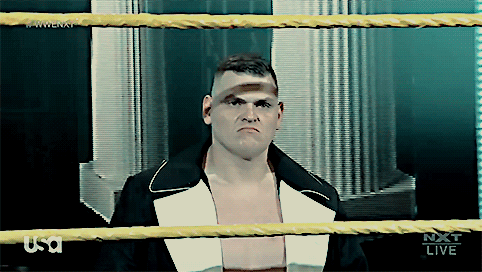
♡ starting prompt: based off a tweet i saw that said ‘we always kinda shipped them together. he kept scoffing that he didn’t like her and yet he always look at her first when someone made a joke to see if she was laughing too’.
♡ pairing: walter hahn (WWE / NXT) x fem reader
♡ lyric inspiration: “come with me and you’ll be in a world of pure imagination. take a look and you’ll see into your imagination. i’ll be begin with a spin....”
♡ note: not checked for grammar or spelling mistakes
"who’s that?” Walter asked his blond friend. Marcel looked up to see you, headphones in and blaring music so loud that everyone was able to hear. “oh, that’s ( your name ). she’s Timothy’s-,” before he could finish the sentence, Timothy came up to you and gave you a quick hug, “that’s his manager. she also works in the front office,” he continued.
Walter’s eyebrows went down in confusion. never in the time that they were together in RingKampf had he ever took interest in having a manager and from the looks of it, you were the exact opposite of Tim. from afar, you were bubbly, excitable, and cute.
Tim was nothing of the sort. polar opposites one might say.
you were sitting in your seat as Tim was eating lunch. dancing to whatever you were listening, Walter couldn’t help but laugh at your antics. he knew Tim like the back of his hand so the decision to make you his manager was either his doing or something that was out of his hand.
“she’s....interesting,” he said under his breath, making Marcel look at him for a moment, “any particular reason why you’re so interested in her? she’s been his manager for a while now,” Marcel put in. Walter shook his head, deciding not to respond.
you were Tim, watching as he scarfed down his dinner while you finished up a few papers that needed to get done for next weeks taping. you were supposed to be dressed and ready to go by six but because of Tim’s new storyline with the boys from Imperium, you had to figure out a few things before the match.
Timothy was a bit hard headed at first, stating that he didn’t need a manager but after a while, he got used to having you around. you were almost like a pest that he cared about like a sister.
“hey, your friends are over there! why don’t you say hi!” you exclaimed, seeing Walter, Fabian, and Marcel in a corner, speaking to each other, “no. we’re not supposed to be speaking with each other,” was all he said before continuing to eat.
you huffed before scooting out of your chair, “well, I’m going to say hello. since we’re going to be working with each other, I guess it’s only right to get formalities out of the way,” you stated, making Tim’s eyes go wide in panic.
he instantly tried to get you to come back but by the time he tried to reach for you to come back, you were already prancing over to them.
“hi!” you exclaimed happily. Fabian, the friendliest of the bunch gave you a smile, “i’m ( your name )! Tim’s manager. it’s nice to meet all of you!” you introduced yourself, giving them your hand to shake.
Fabian introduced himself, giving you a hug instead. Marcel on the other hand just took the handshake and murmured his name to you. Walter remained looking at you, not bothering to say anything outside of giving you a simple head nod.
to the untrained eye, like yourself and others, Walter’s reaction was a given. he was never a man of many words yet to the boys and Tim, they could see that Walter was holding himself back. almost like he wanted to say something but couldn’t find the words.
you giving Walter a smile, one that would’ve made anyone fall for you but he just turned his head to another direction and started to speak to Marcel in German. you gave Fabian a confused look, wondering why he didn’t tell you much but you felt a hand clasp onto your shoulder a second after.
“evening boys,” Tim’s voice spoke from behind you. you gave him another look, wondering why he went back on his word from earlier, “they’re looking for you in makeup and they’re pissed,” he whispered into your ear.
your eyes widened, realizing you were beyond late to get your makeup done. you gave them a quick goodbye, shoving your work into Tim’s hands and screaming at him to put it into your office before basically darting off to the makeup station.
Tim, Fabian, Marcel, and now Alex who had shown up looked at Walter with suspecting eyes. no one said a word but Tim could sense Walter had taken an infatuation with you.
+
a few weeks passed since your encounter with Walter and the rest of Imperium. since you were working 'against’ them now, outside of the ring, you got a bit close to Marcel and Alex. they would invite you to sit next to them when Tim wasn’t with you.
you tried to get closer with Walter but he always closed you off. he would say absolutely nothing to you and when had too, it wasn’t anything besides a few words. at first you thought that maybe you just annoyed him to the point where he didn’t like you but eventually, Tim told you that he was just that way with anyone that didn’t know him.
“good morning to my favorite Germans!” you said, running up to Marcel and Alex, engulfing them into a forced hug. they stood stiff, basically embracing the forced hug, “and Walter!” you added on, giving him a brief wave.
“where’s your boyfriend?” Alex asked, looking around. you fluttered your eyebrows in confusion, “boyfriend? wanna tell me who that is?” you asked. Marcel gave you a hearty laugh, “Tim. he’s asking for Timothy,” he stated.
you let out a laugh, louder than you intended as you sat down next to Walter and Alex, “Tim? my boyfriend? that’s like saying it’s gonna snow in Florida. never going to happen,” you joked, trying to calm down your giggles. “very defensive about it, aren’t ya?” Alex added on.
“people love the idea that we’re secretly together but Timothy is like an annoying brother. I love him but I wanna kick his ass 90% of the time. the other 10 is caring that he doesn’t get killed by you guys.”
before you could continue, you heard a producer call your name, telling you that you were needed to clear up a few things for Hunter. you told them goodbye and went over to the producer.
“so she’s single, huh?” Alex said, tapping his chin. Marcel looked at him, “why do you care?” he asked. Alex shrugged, “now that we know maybe this idiot will ask her out,” he mentioned.
Marcel let out a laugh as Walter stared at him annoyed, “yeah right. he actually has to make conversation first and he can’t even do that with her. I’ve been hearing a few people have been interested in asking her out. not that she knows or anything,” Marcel said quietly.
he actually had no idea if anyone was interested in you or not. personally, he could have cared less but he knew his best friend better than anyone else. Walter liked you, he was just too much of a chicken shit to actually admit to it.
“who?” Walter asked almost immediately. Marcel closed the circle in, “for starters, in the NXT roster is Jordan Devlin and Sami Zayn from Smackdown has been rumored to have gotten her number,” Marcel lied. Alex perked at the names, “and how did you find out?” he asked, a bit suspicious that he knew.
Marcel shrugged, not bothering to say anything for a moment, “oh, just heard a few of the girls talking yesterday while I was working out,” Walter stared at the table, his mind racing with thoughts. he never knew others actually had taken an interest in you, not that it was wrong to do as such but he was taken back that it was more than one person.
“what has you so quiet all of a sudden?” Walter shook his head, not responding as he got up, taking his jacket with him and leaving the table. “I wonder what his problem is,” Alex murmured. Marcel laughed, “he’s finally going to grow a pair and ask her out,” Marcel stated.
-
you were working in your office, sorting through a few different files you needed for a storyline in the women’s division. it was already late into the night as you filed the sheets away and started to get your things ready to leave.
“of course this week had to be my busiest week, now I have to call an Uber home,” you groaned. you had put your car in the shop because of a few issues it had and it wasn’t expected to get finished until at least Monday, “god damn it Tim, you just had to leave,” you huffed.
just as you pulled your phone out, you saw Walter walking out of the locker room, “hey Walter! what are you doing here so late?” you asked, trying not to make it awkward, “I stayed working out late,” he said.
you nodded, “ah, don’t overwork yourself now,” you mentioned, “but give me a second? I need to call an Uber home. my car is stuck at the mechanics until Monday and Tim already left,” Walter’s eyes widened, realizing this was his chance.
“I have a car, I can take you home?” he asked, trying not to come off as intimidating. you perked up in relief, “really? that would be so amazing!” you said happily. he grabbed his keys and jiggled them, “my cars on the other side of the building,” he said.
you followed behind, trying to make conversation and interestingly enough, he was actually responding to you like a normal person would. not those snippets of conversations he would say around the others.
the entire ride home, you were trying to crack jokes, seemingly trying to make him laugh which ended in you making an idiot out of yourself and making him laugh that way instead. Walter had never realized he actually liked you as much as the others would joke he did but now that it was just the two of you, he could sense the feelings were there.
the ride to your house was a bit on the shorter side. you lived in a small two bedroom house, closer to Full-Sail than he thought. just as he put the car into park to let you get out, you turned around and gave him a smile, making Walter glad that it dark outside and you weren’t able to see his sudden red face.
“I know this is weird but would you like to come in? I have food I made for myself this morning after I came from work and I’m sure there’s enough for you.”
Walter sighed in relief.
“I would love too.”
#wwe#wwe imagine#wwe x reader#nxt#nxt uk#nxt imagine#wrestling#wrestling imagine#walter#walter hahn#walter hahn imagine#walter x reader#nxt uk imagine#imperium#marcel barthel#timothy thatcher#fabian aichner#alexander wolfe
80 notes
·
View notes
Text
Winter 2013 - The Beginning of the End and Dianna’s Private Tumblr
January 4, 2013 - Haylor Breakup
Taylor and Harry publicly split and leave us with this iconic picture:
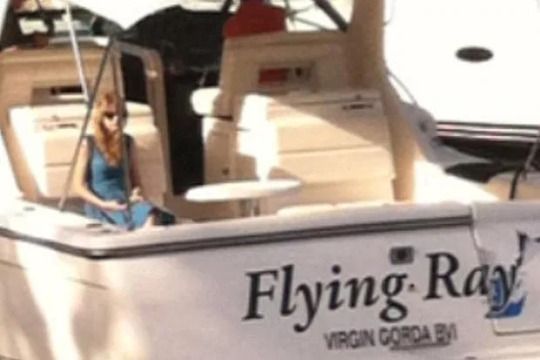
January 10, 2013 - People’s Choice Awards
Haylor is done, Harry is back in the UK, but Taylor shows up with a hickey anyway. (Dianna is in LA at this time.)
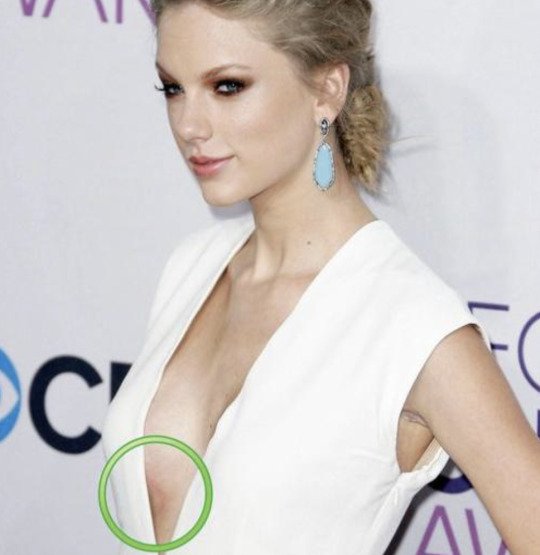
Some time this month Taylor writes How You Get The Girl which is about obviously someone who comes back to get the girl. She references “standing in the rain” and “a long six months.” It’s hard to know if these details are more “fanfic” or actual autobiographical details.
This six months may actually refer to the end of bearding for a while (because it seems like Swiftgron did reunite in Paris in early October.) Exactly six months after Taylor started dating Conor Kennedy would be January 25th, 2013.
As for the rain...
It rained twice in LA this month according to weather reports on the 21st and on the 23rd:
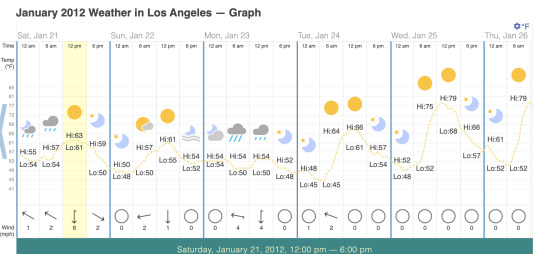
Dianna is in LA at this point and has started a private Tumblr blog under the name whosirmesir (we verified it was hers over on @swiftgron-get-married - and you can click here for more on that if you’re curious and actually I did an entire podcast episode walking people through it if you’re like like to listen to an in depth breakdown of it click here for apple OR click here for spotify OR click here for google.
I also recommend searching the whosirmesir tag on @swiftgron-get-married because we’ve logged a lot of interesting moments and connections to Taylor (quotes, art, and other items that tie DIanna and Taylor together.)
On the private tumblr on January 25th Dianna reblogs this:
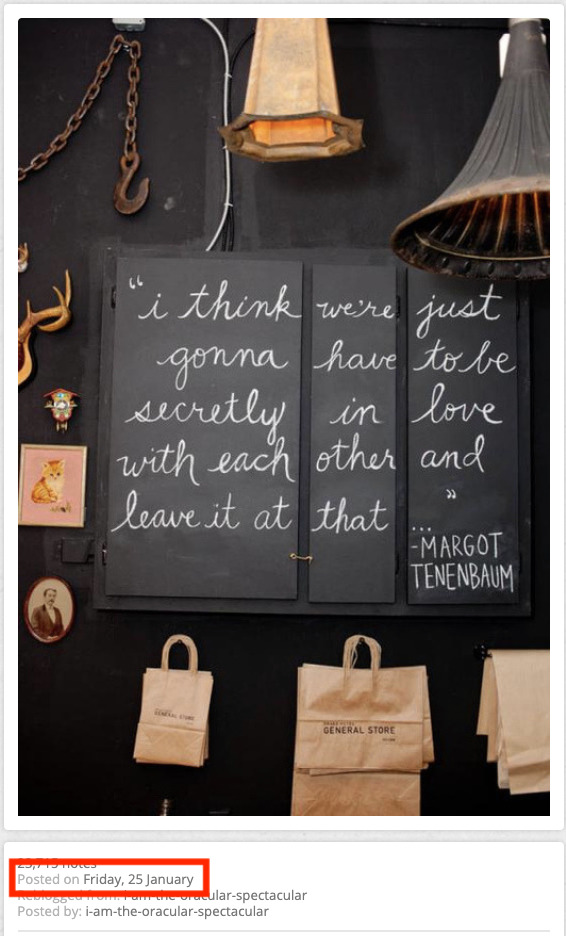
It reads “i think we’re just gonna have to be secretly in love with each other and leave it at that...”
This is also the time period it is rumored that Dianna proposed to Taylor. I’m not sure what to make of these rumors. I have not been able to get anywhere near confirming them. It’s entirely unsubstantiated - but I explored the rumor further in this blog post (click for link.) And also on the podcast (will link just a bit down in this post because it relates to something else we’re about to discuss.)
February 4, 2013 - Dianna recommends “Far Nearer” by Jaime on twitter:

The lyrics are essentially:
“I feel better when I, you feel better when I
I feel better when I have you near me
You
Me
You
I do, I do, I do“
repeated over and over again
February 9, 2013 - Neruda quote on Tumblr from Dianna
Dianna posts a quote to Tumblr. The translation is, “I love you as certain dark things are loved, secretly, between the shadow and the soul.”
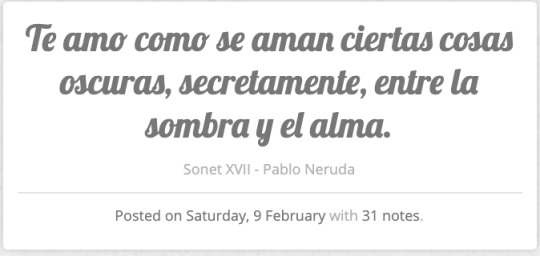
It’s worth noting that Taylor namechecked Neruda in the Red album booklet.
February 10, 2013 - The Grammys
Dianna wants to make sure everyone is watching:

And Taylor posts:
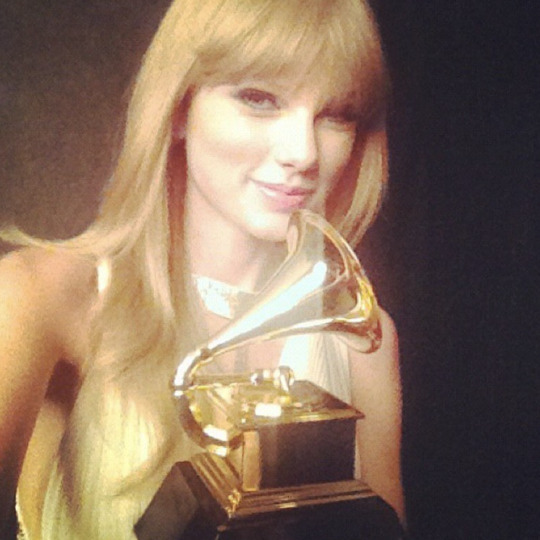
“Look what happened! :)”
She won for Safe and Sound:
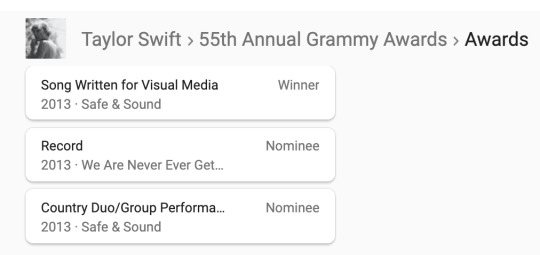
And she performs her circus themed rendition of WANEGBT (where she mocks Harry Styles on stage making fun of his accent when she sings the “so he calls me up on the phone” part of the song even though this song was written before she was even with him.)
The only other time Dianna tweeted about the Grammys was when Glee was involved the year before.
February 14, 2013 - Achele breakfast and The Inside Source at Glee Tweet
According to a Facebook user Cory, Dianna, and Lea have breakfast this morning (or around this time):



Later that day Taylor posts the infamous tweet:
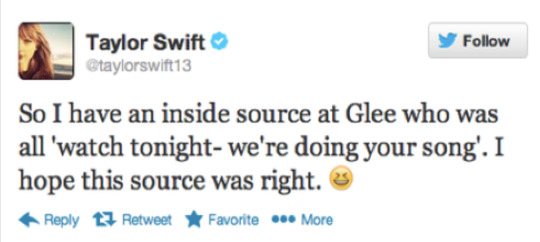
The Glee Episode “I Do” airs and there is no Taylor song included. However Dianna and Naya’s characters hook up:
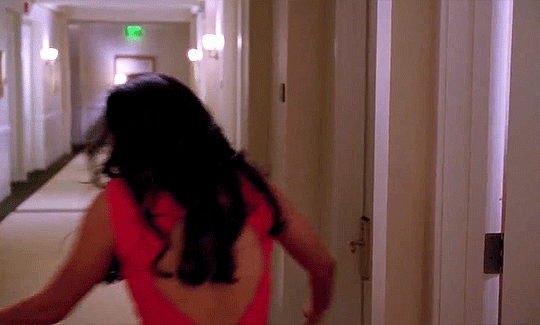
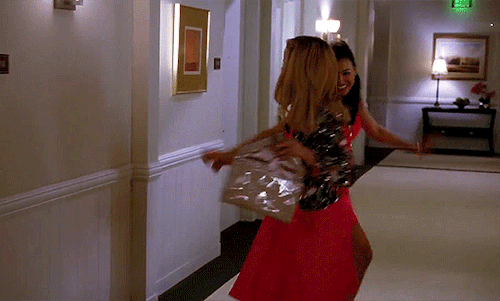
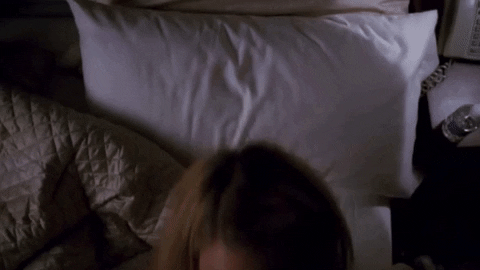
After the episode airs Taylor deletes her tweet.
As always I’m not entirely sure what to make of this but to me it boils down to three possibilities:
1. The fandom seems to think this proves that Dianna purposefully tricked Taylor into watching her “hook up” with Naya on screen. It’s completely possible that that’s the case but I think the next two options make a bit more sense.
2. It was a simple misunderstanding or a joke gone wrong. Taylor had a song earlier on that season of glee (Mine sung as a breakup song by Naya) and I have been told another song of Taylor’s was marketed for another glee episode later that spring. Perhaps someone got their wires crossed and misinformed Taylor.
3. Other nefarious parties:
a. It’s possible that Lea was behind this - she publicly had beef with Taylor at one point and she had been with Dianna that morning. Maybe she met up with DIanna, heard about Swiftgron being happy and back together and got a little jealous and decided to prank Taylor.
b. Ryan Murphy also seemed to despise both Dianna and Taylor around this time. He was also famous for stirring up drama with Gleeks on twitter and generally sewing discontent (particularly surrounding wlw ships and fans). Ryan seems to have a problem with women/lesbians in general. He treated Brittana as a couple horribly on Glee as well as their shippers.
He very publicly shaded Taylor in season one of Scream Queens and said in an interview that Dianna ruined Quinn for him because he said she made her sympathetic.

Not only that but in season 3 he destroyed her character - he made her have a mental breakdown - he had her try and steal a baby - he had her get hit by a car - and a huge plotline in season 3 was Quinn begging Rachel (Lea’s character so Dianna’s irl ex) not to marry Finn (played by Cory - literally the guy Lea chose Dianna over - this is like...emotionally abusive if you ask me.) After season 3 Dianna only appeared in 8 episodes of the remaining 55 after being in every episode and the top third billed of the cast in the first three seasons.
Furthermore in a show called The New Normal there was a bitchy actress character named Brynn who he wrote as high maintenance and unpleasant and then killed off.
So yeah...seems fair to at least consider that Ryan or Lea who publicly had problems with both Taylor and Dianna may have been trying to create problems for Swiftgron. One last note about Lea - there was not a single Achele interaction for the entire year of 2013. The most we got was Dianna liking a tweet about Lea’s album in December 2013 and when asked about one another in interviews they would vaguely say they were still friends. No tweets to one another, no birthday messages, no candids, no hang outs. Lea’s book was also written around this time and does not make a single mention of Dianna - her former roommate and “best friend” even though she spends plenty of time talking about others on the Glee cast.
I did a podcast episode on both the proposal rumors and the inside source at Glee tweet if you want more extensive takes on that!
While I’m not entirely sure Dianna had anything to do with this tweet Taylor references this date (2-14-13) by putting it on a dollar bill as a serial number in The Man music video:
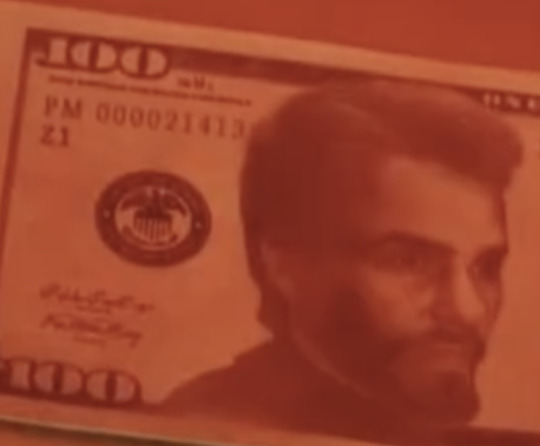
At any rate Taylor deletes the tweet and replaces it with one about her dancers:
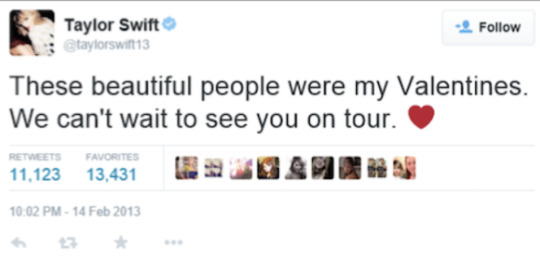
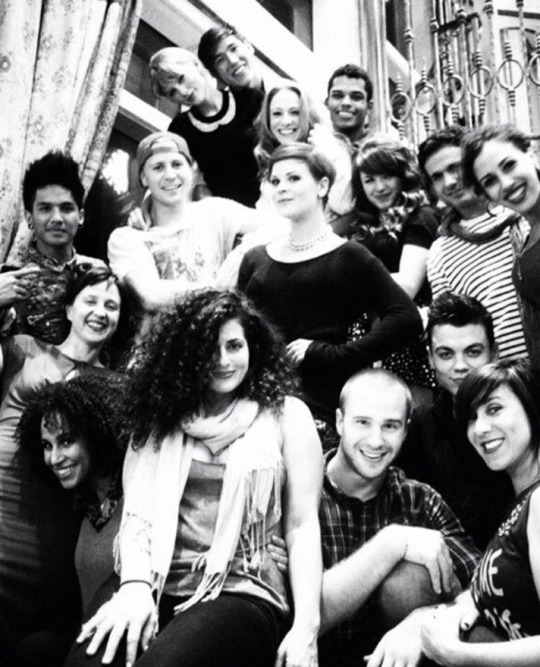
Dianna tweets 9 hearts that day (I don’t know if that’s significant but if they were together from March 2012 to July 2012 and then October 2012 to this point it would mean 9 months together...)
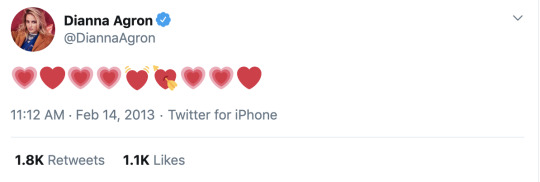
February 19, 2013 - Sad Charlie Brown Tumblr post from Dianna:
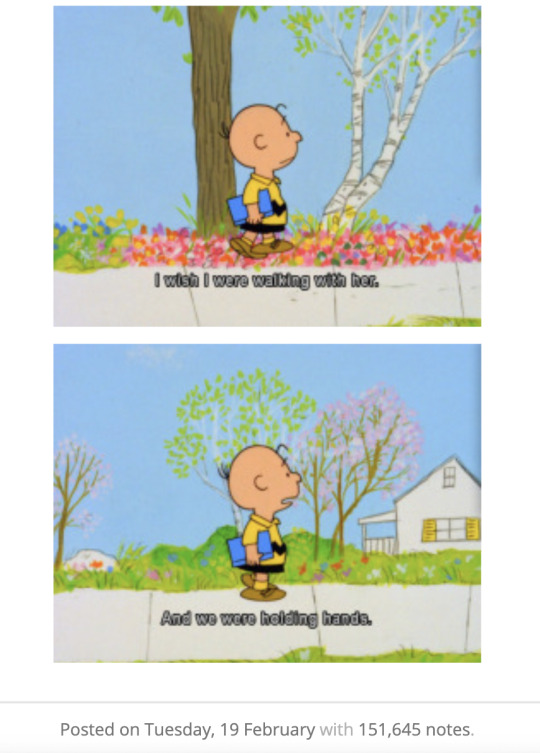
February 27, 2013 - Fitzgerald quote
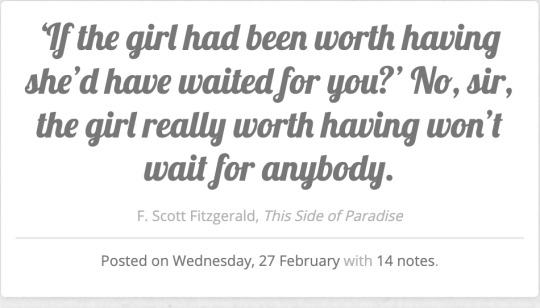
Taylor listed this as a quote to live by in an interview with Marie Claire a few months later.
I’m not sure if it’s important but Dianna is very quiet this winter and spring in terms of showing up at events, parties, even being papped out on the street compared to other years around this time. She seems to disappear a bit.
February 27, 2013 - Taylor gives a bday shoutout to her Fiddle player Caitlin:

“Happy Birthday to my magical friend, fiddle extraordinaire @/caitlinbird”
March 12, 2013 - Weird tweets from Dianna “One of those days.”

March 13, 2013 - It’s the first day of the Red tour (is that why Dianna had questions?)
About the Red Tour - the last act of the tour seems to be circus themed which may have been inspired by Dianna’s 26th birthday the previous year and really interestingly Taylor has a white rabbit, which is a reference to Alice in Wonderland (Dianna’s favorite piece of media ever) follows Taylor around stage during the WANEGBT performance as she’s dressed up like a circus ringleader:
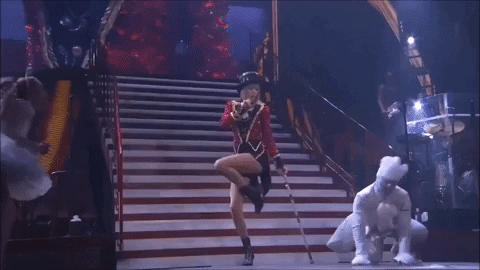
March 18, 2013 - Dianna goes on a Girls HBO rant (we know who also loved Girls the show and its creator Lena Dunham (Taylor))
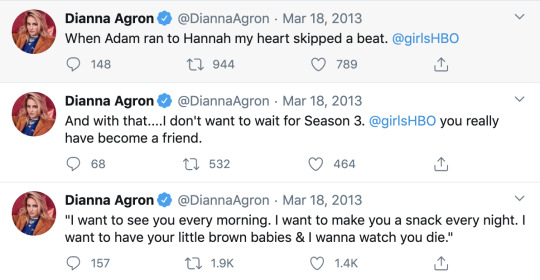
End of March - Lena and Ashley show up at the Red Tour backstage
Conclusion - Swiftgron is on but completely underground. Dianna is blogging and tweeting romantic things about missing girls, Taylor’s interests, and secret love, all while watching Taylor perform at the Grammys and encouraging others to tune in. Something weird happened with the inside source at Glee tweet but who knows what. Dianna seems a bit restless and emo while Taylor leaves to go on tour.
Click here to keep reading!
202 notes
·
View notes
Note
would u ever analyze disloyal order? it is my favorite fob song but much of the verses honestly confuse tf outta me, particularly the second one. lol
of course! ill do that for you now. fun fact: disloyal order is the song that 100% sold me on fob
to begin with the title, it is a reference i am far too young to get and have just figured out after years of puzzling. its a reference to an elite boys club in the flinstones. disloyal order of water buffaloes as a title is just saying "society is made for a certain kind of people to succeed and its fucked up" and that makes all of the lyrics make so much more sense. its been so long.
the prelude describes the persona coming undone, and turning themself into someone elses ideal. trying to do so leaves them feeling empty inside, since this isnt what they want, this is whats expected of them. this fits nicely into the overarching theme of the album, which is [joker voice] society and how it shapes us for better or (more often), for worse. in fact, disloyal order, as an opener, is an introduction on the essay that is folie à deux, painting broad strokes of a lot of what it covers. the prechorus also touches on this, painting the persona as just a single malfunctioning part of a whole intricate system.
the first verse points to the persona waking up, dazed and covered in wounds, and covincing themself this is normal, and that they wouldnt remember it even if they tried. it goes on to talk about them bein arrested, and them needing medical attention, and that theyre certifiably insane, but also taking care to mention how sensational their story is. this verse tells us about the exploitation of sick people, and about people running themselves into the ground for fame or money. they dont need to be sold as a story, they need to be helped as a person.
the second verse gestures to themes of sex and romance. theres a moment where the persona misinterprets something innocuous as an advance (little girl got me staring odd/or is that just a telescopic camera nod). they then goes on to talk about soliciting sex workers– they can only really interpret woman in the context of being attracted to them. one could argue the line "all the rookies leave your badge and your gun on the desk when you leave the room" could be about inexperienced young lovers being told to sit this one out.
and then, the chorus, which asks people to embrace apathy (boycott love) and to stay ignorant and repeat the same old mistakes (detox just to retox). the line "id promise you anything for another shot at life" implies someone promising to fix everything in exchange for another chance. the last two lines, however, i think are most interestingly read from a meta perspective, ie its the band saying 'no one wants to hear celebrities sing about peoples problems'
i think disloyal order points to one of the main problems i have with folie, which is that its way too ambitious. they wanted to do so much, musically and lyrically, gave themselves too little time to do it, did the whole citizens fob thing, they stuffed a lot onto every song, and i think the albums is worse off for it. dont misconstrue me, folie is a beautiful album that explores a lot of ideas in a genuinely thought provoking manner, and musically i think its extremely well put together. truly its an experience of sound. but i think the concepts dont work together in the way they could. lyrically i think its among the weakest fall out boy albums, because unlike ioh, which is specifically about fame, or mania, which is just about mental health, or futct, which is about a specific relationship and the feelings it evoked, this album is about everything, and it gets that across really well sometimes but just as often it gets that across really okay-ly.
like, in this song alone, which summarises the album, we have 3 very distinct themes– exploitation of vulnerable people, sex and relationships, and apathy being exploited for power. theyre definitely connected, but this one album feels like it shouldve been a triptych, or that one of these themes shouldve been dropped completely (i think number 2 wasnt that necessary). i love it, i really do, its genuinely amazing and its a masterpiece and is so worthy of being anyones favorite. this is just my purely technical (as in based in technique and execution) criticism.
-
consider buying me a ko-fi?
#dils declares#dils dissects#if youd like my longer analysis of folie please feel free to ask!#i really cant stress its very much a good album!#i just think it really couldve been better in a few places#disloyal order of water buffaloes#folie
19 notes
·
View notes
Text
Analysis of ‘No Body No Crime’ by Taylor Swift, Part 1
Hi! As a Swiftie and a fan of literature, I absolutely love analysing Taylor Swift’s lyrics because they are absolutely phenomenal. In this post I’ll analyse some of the lyrics of Taylor Swift’s song “No body, no crime” from her album Evermore. I’ll do a line-by-line analysis, and I will elaborate more on the themes of the song, along with some further deeper analysis of the characters and semantics of the song over the next few posts. I’ll refer to ideas from other websites and sources to deepen my analysis. I can’t really provide much analysis of the actual music, since my strengths lie in language analysis. Let’s get started!
No body no crime
Straight away, our title introduces us to one of the central themes of the song: Justice. People say “no body, no crime” to suggest that as long as there is no particularly incriminating evidence, then the person being accused of the crime must be innocent. This is, of course, a rather frustrating idea, since we all know that bodies can be disposed of. The song plays with this frustration and returns to this idea as the song progresses.
Every time we hear this chorus, it is with a new layer of meaning added to it, causing us to examine the idea of evidence, or lack thereof, playing in someone’s favour, from different perspectives.
There is a sense of finality and firmness that accompanies this saying. It is the kind of thing someone might say to dismiss a person’s concerns. In the context of this song, this possibly represents how people will staunchly adhere to arbitrary beliefs, despite how this negatively impacts humanity’s ability to have a truly just justice system. This lends itself to the ever-present frustration of this song.
It is also quite a short and empty phrase, in terms of emotional depth, which is perhaps what makes it so versatile in this song. It can mean many things, or rather be seen in different lights, depending on the context of the story it is presented in.
This title can also be used to generally describe how a lack of evidence can lead the perpetrator of any crime or misdeed to walk free.
He did it
He did it
The song starts with this foreboding chant, immediately leading us to ask questions. Who is “he”? What did he do?
As a listener, we already understand the cultural connotations of what is being said. When we say someone did “it”, we are usually referring to a crime, which links in nicely with the main title.
To me at least, there is a sense of anger mingled with determination in these two short sentences. They are complete short sentences that pack a lot of emotional impact with them, which emphasises our narrator’s certainty about this belief. The repetition also reinforces this. This accompanies a sense of danger and anticipation: we know he did it...now what?
Este’s a friend of mine
We meet up every Tuesday night for dinner and a glass of wine
Our story begins with the introduction of the person who is arguably our plot's catalyst: Este. The way she is introduced is through the lens of our narrator, who interestingly introduces Este through the way she relates to the narrator (“a friend of mine”). It is like we are being told a story, or perhaps a confession, by an old friend because we need the narrator’s guidance on her and her character, which is strange considering we know almost nothing about our narrator.
The introduction is quite innocent, which leaves us with a sense of unease considering our morbid title and first lines. It feels like the calm before the storm, since what is being described is so normal. This initial setting adds a sense of warmth to the story. It evokes images of giggling confessions and glowing candles on a small cosy table for two. Do you know how a lot of horror films start their main story in quite a nice setting to lull the viewers into a false sense of security but also anxiety? This has that kind of energy.
We are also introduced to one of the central relationships in this story; the relationship between Este and the narrator. Our narrator (I am going to assume they are a woman) seems to have quite a friendly relationship with Este, since they are doing the activity of having dinner together. I assume that they are both women almost instantly, since friends having a get together with some wine is something I associate more with women than men.
I would also say that this also introduces a key facet of Este’s character: reliability. She makes good on her commitments, which will be more relevant later. This will give her a more likeable image.
Este’s been losing sleep
This quite swiftly moves the plot into more unfriendly territory, as we instantly wonder why on earth she is so worried. This instantly draws our sympathy, since worry is a very relatable feeling, causing us to identify with her.
Not sleeping has obviously detrimental physical effects, so whatever bad situation she is in is literally causing her to “lose” her health, which could foreshadow her death.
The fact that our narrator is being confided in by Este, this is further proof of their close relationship.
Our story so far has operated on the belief that we know who the narrator is, since it is the recounting of a story that focuses on other people (namely Este and her husband), which is strange since a single perspective is usually quite biased. The outsider’s perspective provides a sense of detachment that lends itself to the illusion of a cool unbiased narrator (which is probably not the case here). To me, it could also be indirect characterisation, and implies that the character of the narrator is not a particularly self-obsessed person, and is perhaps used to being more of a background observer. Hell, that might just be the way they are presenting themselves, in order to further justify their actions. After all, how can you fairly judge someone you don’t really know? Or the song is just quite short so you cannot really elaborate much on all the characters. There is a lot you could say about this.
Her husband’s acting different and it smells like infidelity
This, of course, instantly causes us to sympathise with Este. This misleading beginning causes us to believe that the crime in question is simply infidelity. It does not seem sinister though, since infidelity is common.
This line immediately brings up feelings of anger in the listener for obvious reasons, and anger is a pretty good motivator to keep on listening.
In saying that “it smells like infidelity” suggests that Este is something of an investigator, and is sniffing out the culprit of crimes done against her. It could also simply be a reference to smelling his bullshit (a.k.a his lies).
Also (stay with me here), maybe the use of the verb “acting” could imply that Este and her husband’s relationship has become a performance of sorts, since he is unwilling to admit that there are some obvious issues in their marriage.
This is the first post, I’ll continue my analysis in another post. I hope you enjoyed this analysis!
14 notes
·
View notes
Text
The Les Miserables Changelog Part 4: 1987 Australian Tour
Hello, everyone! This is the latest edition in my attempt to chronicle all of the musical and lyrical changes which the show Les Miserables has undergone over the years. Unlike previous parts, this one is not focused on any official libretto changes affecting all productions of the musical. Rather, it looks at a set of changes applied specifically to the 1987-1991 Australian tour. While the tour mostly followed the normal 1987 libretto discussed in the last part of this blog, it did add a few unique touches that are worth discussing here. Many would never make it outside of this particular production; however, a few would in fact be used in later productions of the musical too. Without further ado, let's get started!
The first change I am aware of is in the prologue. Usually the Bishop tells Valjean, "Now God's blessings be with you". In the Australian tour, he instead states "May God's blessings be with you". Not a big edit, but an edit nonetheless.
The next change comes at the beginning of "Lovely Ladies". While originally a sailor sings that "seven days at sea will make you hungry for a poke", the Australian tour switches this to "seven weeks at sea". I suppose this would be a more realistic timeframe for a sailor at the time to be away, and it also makes him come across as slightly less desperate. Having said that, the original sense of desperation fits the mood of the number perfectly.
The very next scene, "Fantine's Arrest", also has a very slight change. While usually Valjean requests "A moment of your time, Javert, I do believe this woman's tale", the word order is swapped so that he instead asks "Javert, a moment of your time, I do believe this woman's tale" in the Australian tour. Not a huge change, nor do I quite know what it was supposed to accomplish, but interesting nonetheless.
In "Who Am I?" Valjean usually asks regarding his workers, "How will they live if I am not free?" The Australian tour changes this slightly to "How will they fare if I am not free?" This slightly changes the mood from a life-or-death situation to a more subtle question of looking out for others' well-being, though it's not a huge difference.
Then, after "Who Am I?" a bit of spoken dialog is added for this tour. Perhaps in acknowledgement of the "You know where to find me!" used in the West End at the time, Valjean shouts "You will find me at the hospital St. John!" after his high note. Similar in spirit to the mostly-scrapped original declaration, though now he doesn't actually trust Javert to figure out his location (which makes more sense to me than the original).
The preamble to "Master of the House" mixes up the genders regarding the bar crowd's lines. First off is the opener, which usually goes as follows:
(FEMALE PATRON)
C'mon you old pest
(MALE PATRON)
Fetch a bottle of your best
(MALE PATRON)
What's the nectar of the day?
In the Australian tour, this is how it goes:
(MALE PATRON)
C'mon you old pest
(MALE PATRON)
Fetch a bottle of your best
(FEMALE PATRON)
What's the nectar of the day?
Usually this was how a later part went:
(MALE PATRON)
One more for the road
One more slug of gin
(FEMALE PATRON)
Just one more
Or my old man is gonna do me in
The Australian tour swapped the sexes of some of those lines, leading to a slightly different final lyric:
(MALE PATRON)
Landlord over here
Where's the bloody man
One more for the road
(FEMALE PATRON)
One more slug of gin
(MALE PATRON)
Just one more
Or her old man is gonna do her in
The ending to the "Waltz of Treachery" has an interesting lyrical edit. Usually Valjean proclaims the following:
Yes, Cosette
Yes it's true
There's a castle just waiting for you
However, the Australian tour gave him this line instead:
Yes, Cosette
Yes it's true
A world of surprises is waiting for you
This gives a much more general promise to Cosette, and is a less direct response to her "Will there be children and castles to see?" question. I'm not sure which I prefer to be honest.
A very small change occurs during "Look Down"; namely, a line originally sung by the ensemble is now sung by just one person. Originally this is how the sequence goes:
(BEGGARS)
See our children fed
Help us in our shame
Something for a crust of bread in Holy Jesus' name
(SOLO BEGGAR)
In the Lord's holy name
(BEGGARS)
In His name, in His name, in His name
However, for the Australian tour, "Something for a crust of bread in Holy Jesus' name" is sung by one single beggar woman (who is distinct from the beggar woman who sings "In the Lord's holy name"). This change would be adapted into the official libretto much later to account for a staging change in which the beggar singing the line walks by Marius and Enjolras to ask them specifically for some extra cash (as opposed to asking for help more rhetorically, as was originally the implication). I'm curious as to whether or not the Australian tour used a similar staging difference earlier on, or if there was some other reason to make the line an individual one.
A few changes are made to "The Robbery". First off, Thenardier tells Valjean "God rewards all the things that you do" as opposed to the normal line, "God rewards all the good that you do". I slightly prefer the original, though it's not a huge difference.
Finally, Eponine's "It's the p'lice, disappear, run for it, it's Javert!" is bizarrely changed to the rather repetitive "It's the p'lice, disappear, it's the p'lice, it's Javert!" I have no clue what this was supposed to accomplish, because it makes the line far messier than it was before. Perhaps this was the intention, in order to highlight Eponine's unrefined self? Though that doesn't seem particularly relevant to the scene... who knows.
Some significant changes occur during "Stars". Not long after the song's start, Javert's declaration is changed from its original:
A fugitive running
Fallen from grace, fallen from grace
Into the less repetitive:
A fugitive running
Fallen from God, fallen from grace
Personally, I have a soft spot for the original repetition, but i do understand why some would prefer the Lord's name being used instead of the vaguer concept of grace.
Soon afterwards, a few conjunctions are removed. Originally Javert declares:
He knows his way in the dark
But mine is the way of the Lord
And those who follow the path of the righteous will have their reward
However, the Australian production (and the London production not long afterwards) simplified the sequence to:
He knows his way in the dark
Mine is the way of the Lord
Those who follow the path of the righteous will have their reward
I suppose the conjunction-free variant is likely to be easier to sing, since the lyrics are a little less rushed. This variant also separates the lines so that they come across as separate sentences, instead of one long run-on one. However, it does slightly bug me that the later line "And each in its season returns..." maintains its conjunction while the opening verse does not. That strikes me as somewhat inconsistent.
By far my favorite change to "Stars" happens towards the end. Originally, Javert sings:
And so it has been
And so it is written
On the doorway to paradise...
However, the Australian production changes the first line in the sequence:
And so it must be
For so it is written
On the doorway to paradise...
The revised line is much more dramatic and forceful, and makes Javert's final promise all the more powerful. It also sounds less passive, which seems more appropriate for Javert's character.
Philip Quast, who originated the role of Javert in Australia and later returned in 1991, changed the line "We'll be ready for these schoolboys" into "I will join these little schoolboys" during "One Day More". This line arguably makes his intentions a bit clearer, though it carries less threatening implications than the original lyric. Interestingly, however, Quast's replacements in the tour revert to the original line.
A very slight change occurs in "Drink with Me". Instead of Grantaire's "Can it be your death means nothing at all?" he asks "Could it be your death means nothing at all?"
Something weird happens during "Dog Eats Dog". For whatever reason, instead of the usual musical interlude that plays as Valjean carries Marius through the sewers, a similar but slightly different (and in my opinion inferior) variant plays instead. It sounds quite messy in my opinion. I wonder whether or not there was some difference in staging to inspire this different version of the music, or if someone inexplicably just thought it sounded better?
Similarly, the usual music that plays as the Thenardiers awkwardly feign sophistication during the wedding scene is given another in my opinion less polished edit. Nothing much to say here that I haven't said in the context of the last change.
One of the more impactful changes in the long run comes in the epilogue. Originally Fantine and Eponine sung the following line together:
Take my hand
And lead me to salvation
However, the Australian tour gave them the following line instead:
Take my hand
I'll lead you to salvation
This makes a lot more sense, since they have been dead for years and only now is Valjean joining them. Some have argued that because Valjean has become the epitome of good, an almost Christ-like figure, it ends up that he continues to save people even after they have passed away, hence the original lyric. I personally don't buy this at all. I think Fantine and Eponine were clearly good people doing the best they could, and if they still need an outside influence to be considered worthy of salvation that speaks quite poorly of whatever God may exist! The revised line is far better in my opinion, and fortunately it would become the standard worldwide in a few years.
And that just about sums this part up! (Man, it feels good to make such a short, easy post after the hours that went into the last one!) If I missed anything feel free to let me know, as my goal is to create a changelog as thorough and complete as possible. I plan on making more parts in the near future covering all the changes that have been made in the show up until this day (discounting concerts). Any feedback and constructive criticism is very much appreciated.
As a side note, both for this project and my own enjoyment, I want as complete a collection of Les Miserables audios as possible. I already have most of what’s commonly circulated, but if you have any audios or videos you know are rare, I’d love it if you DMed me!
Until the turntable puts me at the forefront again, good-bye…
#les mis#the les miserables changelog#les miserables#valjean#javert#changelog#1989#australian tour#fantine#marius#cosette#eponine#enjolras#thenardier#gavroche#musical
11 notes
·
View notes
Text
Michael Jackson's They Don't Care About Us: The relevancy of the unmatched protest-masterpiece still actual today.
They Don't Care About Us, was perhaps the most monumental and relevant form of audiovisual protest, which force was specifically to draw the attention to social and political issues such as hate, racism, prejudice, police brutality. The form of art is cultivating an ideological allegiance with the greater social plight for minorities. With his art, Michael became the voice of the voiceless, of the oppressed, of the neglected, of the abused. Yes, Michael Jackson was THE voice.
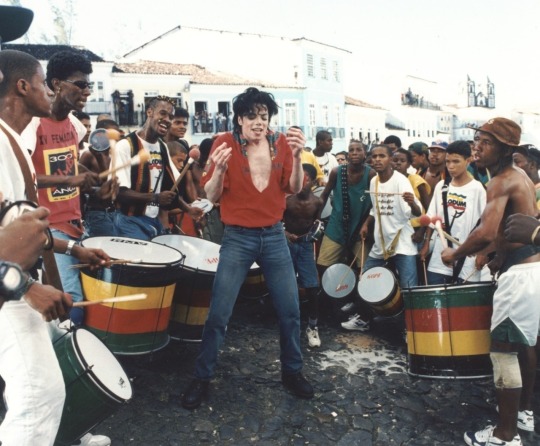

Hi music lovers, today's topic is Michael Jackson's They Don't Care About Us the song and the music video.
It was from September 1994 to March 1995 that Michael recorded and released HIStory, his 5th studio album. The work was one of the artist's most personal artistic outputs, where music turned into a mirror reflecting Michael's deepest sorrows, fears, anger, and frustrations. It was then when Michael let his music speak louder, providing a perfect clap back to all those who questioned and speculated. The album was a double-disc of greatest hits, HIStory Begins, and new material HIStory Continues.
Speaking of They Don't Care About Us, it is the second track on HIStory Continues, following Scream and precedent to Stranger In Moscow. The song is a straightforward response to the ruthless and ubiquitous injustices perpetrated upon him and more in general upon black people by the racist forces of the white cultural hegemony. Extremely compelling is the aura of pure rage and frustration articulated in They Don't Care About Us, both in the record and in the two poignant and groundbreaking music videos (The Prison version and the clip shot in Brazil), released to accompany the track as a single.
Personally, when I began to approach Michael's music, I did not quite understand the real deep meaning and message the song was delivering. However, as I grew up, I developed interest and curiosity regarding the significance of this timeless masterpiece. Particularly the visual interpretation caught my attention. Hence, this article will entail the information I found through my research. The two videoclips released, were, and still are, wildly exhaustive pieces of art, expressly crafted to challenge our very seldom corrupt societies, people's beliefs and mindsets.
Moreover, in these short movies, the artist did not miss the chance to channel his frustrations and rage through his distinct blueprint that turned everything he did into pure gold. There is a broad range of aspects that compose the audiovisual endeavors that are worth discussing. These elements comprehend the lyrics, the human rights violation, racism, and social injustices; all these perspectives are the fulcrum of the whole work. The acute and fierce language contributed to making the artistic output more impactful.
It is now interesting to also analyze They Don't Care About Us from a Post-Colonialism theoretical standpoint. Firstly, for those not familiar with the Post-Colonialism theories, it is a study of all the effects colonialism had on cultures and societies, concerning both European countries, that brutally conquered other nations, and how the lands and populations won responded and most importantly resisted those invasions and trespasses. Furthermore, the study of Post-Colonialism as a body of theory has and is still going through three major stages. The initial one entails the first phase of awareness of the social, psychological, and cultural unjust condition of inequality and exploitation, enforced by being in a colonized state. Secondly, a struggle for ethnic, cultural, political, and economic autonomy begins. As a consequence, there will be a growing awareness of cultural overlap. Eventually, I would say that some of the post-Colonial elements are quite evident in the two music videos.

The song and the two music videos are eloquent protests against racism. Michael speaking in the first person gives a platform to all the voiceless minorities, offering an accurate and poignant depiction of their conditions of merciless oppression, that stripped minorities of their humanity, pride, and most importantly their rights. Related to the concept of racism, with a simple yet efficacious line, Michael addresses the still hugely relevant and actual issue of police abuse and brutality, which is the central theme of the Prison Version short movie. The artistic output was magistrally filmed by the genius Spike Lee, in a real prison in Queens, New York. The opening sequence shows black schoolchildren standing behind a wire fence in the snow, chanting the chorus of the song, providing a visual accompaniment to the introduction we hear on the record. As the beat kicks in, the scene displayed is quite impressive and provocative, because it employs a poignant and immaculate montage of explicit documentary footage.
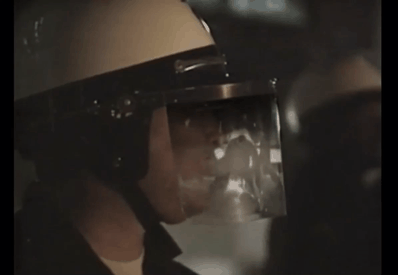
The clips complementing the short film are retrieved from the footage of the Rodney King beating and subsequent LA riots and the brutal police beatings of African American people. We then witness the swell of an atomic mushroom cloud, followed swiftly by footage of a Japanese child sitting alone and crying amid a devastated Hiroshima. Alongside, we see a close-up image of an African boy face swarming with flies, then the assassination attempt on George Wallace. Subsequently, come on the screen, some pictures of the student rebellion on Tiananmen Square in China, and finally some footage from the Vietnam War. All these footages contribute to making the video so harsh to the point of getting the audience uncomfortable. In the scenes taken in the cell, Michael appears to be haunted by the ghosts of beaten people.
his film stands out for its immediacy and accuracy, yet these clips do not incite destruction nor hatred, but rather the opposite. Indeed, those footages are stressing compassion, a peaceful reaction to a hurtful and horrible situation, and political reunification. Thus, this is another reason why there is not even a trace of violence or sign incitement to hatred or aggressive reactions. Those were not merely television images, but real-life pictures of a horrid reality of human humiliation, abuse, and suffering that sadly surround us everywhere, that break into our everyday lives through television, social media and computer screens. In the video, the tension is palpable yet, the revolt is peaceful and not suppressed by the guards. However, Michael openly expresses his anger with demonstrative insolence. For instance, he sweeps tableware off, hits a guard's baton right in front of his face. Interestingly, the artist is the only prisoner who moves freely and around the dining room, demonstrating against the disregard for human rights and laws by authorities. During the whole short film, Michael tries to convince people to fight for their rights, raising the spirit of protest against oppression and humiliation.

However, in reality, prison riots never end with prisoners slamming fists against the tables or dancing on top of them and, Michael was very well aware of it. The last scene of the video shows the artist free and running up the stairs, glancing back, running away from the penitentiary in a Brazilian favela (might this be the red thread that connects the first short movie with the second video?) while his scream still lingers in the air … Leaving eventually an open question which is asked through ASL American Sign Language: "I don't know what lies ahead… Where will this spirit of struggle lead me, where will it further manifest?" This part honestly gave me chills!
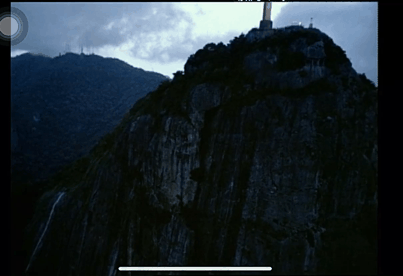

The second version of They Don't Care About Us was shot in Brazil in February 1997, precisely some parts were filmed in the central district of Salvador de Bahia. The footage where Michael is wearing the iconic Olodum t-shirt and dances with Brazilian people was taken in a favela in Rio. However, for the artist, it was quite a struggle to manage to shoot the short movie in Brazil because the local authorities intended to prohibit the filming, expressing their dislike for the project, given that it would have shown the country in an unfavorable light. Yet other authorities approved the project because it would have been an influential means to draw the world's attention to the condition of poverty. Thus, the region might have benefitted from having such a big platform offered by one of the most prominent artists on earth. However, after the Brazilian government allowed to film the video for 20 days, it changed its mind abruptly and reduced, vastly, the filming period to 5 days only. The Brazilian version opens with a girl speaking in Portuguese saying: “Michael, eles nao ligam pra gente.” which means “they don’t care about us.”, then showing the whole favela with an aerial shot. Eventually, Michael gets out of a door and starts performing.


Although this version is still impactful and manages to deliver the message impeccably, I would say that it presents some fundamental differences from the so-called prison version. Indeed, even though some policemen who look stern and indifferent are part of the short movie, in the Brazilian clip, the atmosphere is quite different from the previous one. As a matter of fact, the festive whirlwind of colors, rhythms, and dances are what reminds the audience of the social meaning of the song.
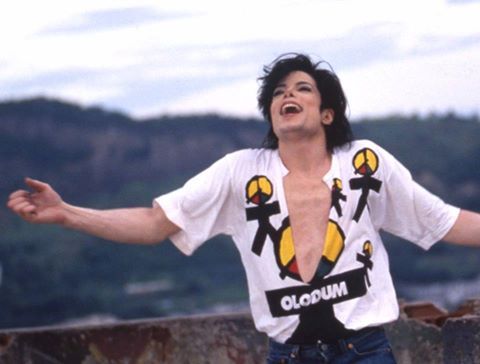
Furthermore, the vivacious and colorful performance is backed by members of the local cultural and musical group: Olodum. The organization was and still is of particular importance as one of its primary purposes was to combat racism and help cultivate a sense of self-pride and affirmed identity among the Afro-Brazilian community in the region. The organization as well provides a springboard for the promotion of civil rights on behalf of all marginalized groups. Hence, it was not a mystery the reason why Michael was aligned with Olodum, to the point that he supported the organization by wearing their merchandise in his short movie. The display of solidarity was reciprocated, through the act of the collective performance of the group’s musicians who contributed with an additional layer of live percussions and vocals, over Michael’s original studio recording.
Moreover, the language as well plays a fundamental role in this creative output. Indeed, the lyrics and the whole message delivered with this piece were not exuding revenge or aggressiveness, which were typically used to fuel accusations and rage. Au contraire, the song is the manifestation of the indignation and the energy of resistance, empowering self-control and fortitude against repressions. Hence, I would say that the song does not contain a single trace of aggressiveness, and its content and energy stay perfectly within boundaries. The language and expressions employed to address the issues are particularly relevant to explain the horrid effects colonialism and post-colonialism have had on the populations affected and thus to protest against the neglect of fundamental human rights.
Furthermore, it is interesting to point out that the element of the language expresses the manifestation of spiritual endurance and disobedience against the oppressors and lying accusers immaculately and, therefore, the dualism between the artist singing in the first person and the "Us" contained in the title and refrain of the song. Although TDCAU is addressing some social and political injustices, it may as well be true that Michael has attempted to convey his frustrations and anger in this piece, turning them into a timeless audiovisual work of art. Arguably, this could as well be the reason why the artist decided to release two variants of the short movie, the prison video featuring a crude and powerful documentary and the flamboyant, colorful Brazilian clip.
Furthermore, another element related to the Post-Colonialism discourse is how the artist and more in general black people and minorities are very seldom victims of unjust and appalling stereotypes that are addressed in the line “Don’t You Black Or White Me". This brief but straightforward segment of the song could be subjected to double interpretation. On the one hand, there is Michael Jackson, a man, a human being, a son, a brother, a father, a friend, who from the day he was born was put under the magnifying lenses of the whole world, his audience and tabloids. Most of the times he was judged, wrongly, bullied I would say, to the point that he could not even enjoy his life anymore without the anxiety of being abused, ridiculed and humiliated by people who did not take a second of their lives to do their research on his works, life, and what he stood for. Therefore, this line, specifically, is how the artist expressed his frustration towards those utterly racist reactions towards him. On the other hand, Michael decided to extend this statement to a broader scale, becoming the brave advocate who gave voice to all the voiceless people who were victims of racism, prejudice, ignorance in all their nuances and degrees.
Moreover, as Michael responded to the critiques received for the straightforward and sharp lyrics during a press release for the New York Times in 1996 " The song, in fact, is about the pain of prejudice and hate and is a way to draw attention to social and political problems. I am the voice of the accused and the attacked. I am the voice of everyone. I am the skinhead, I am the Jew, I am the black man, I am the white man. I am not the one who was attacking. It is about the injustices to young people and how the system can wrongfully accuse them. I am angry and outraged that I could be so misinterpreted." He was the voice of the angry and outraged voiceless.
To conclude, They Don’t Care About Us with its first-person narration, the refrain, and the two iconic music videos, the socially and politically challenging lyrics and message, relates to the problems minorities face every day. They don’t really care about us means they, the society, privileged white people, the governments, do not care about the minorities, about the voiceless who have been abused, oppressed, robbed of their rights. They don’t really care about the people. The challenging lyrics and footages in the prison version offer us a chance to reflect on the importance of these topics. Not to mention the actuality of the song, which is remarkably accurate and relatable to the modern world and times we are living in. This artistic output is the greatest, most compelling and influential statement against every injustice perpetrated against all human mankind, and will forever be part of Michael's and the world's legacy. Therefore, the questions my reflection generated are: is this the world we want to live in? Are these the world and the society we want our children to grow up into? Is this the world without prejudice, ignorance, abuse, oppression, no equality, and equity we want for ourselves? And for the white folks like me: are we using our privilege wisely, to uplift, amplify the voices, the needs and wants of our brothers and sisters who are part of minorities and are facing some serious major struggles and discomforts? As Michael asked at the end of the short movie: “ I don’t know what lies ahead… Where will this spirit of struggle further manifest?”
Reflect deeply.
Thank you for your attention💜 Peace. G✨
#michael jackson#michael joe jackson#king of pop#kingofpop#they don’t care about us#brazil#prison#protest songs#olodum#music#music icon#music blog#black excellence#iconic#music legend#great artists#genius#article#mjfam#mjj#mjinnocent#mj icons#history#album#pop#protest#protect black lives#black lives matter#police brutality#injustice system
138 notes
·
View notes
Text
63. 1965 – Luxembourg – Poupée de cire, poupée de son
Having just ranked all the songs I dislike for how they sound, the next two entries in my list are songs I used to like, but once I found out more about them, I came to dislike them.
When I started doing this ranking I originally placed Poupée de cire, poupée de son in the low 40s, a bit lower than I might otherwise just based on the music, because I knew roughly what the song was about lyrically and the subtext there and I wasn’t really comfortable with it. However, as I looked into it further to do this write up, I found out it got much worse – France Gall herself wasn’t aware of the subtext in this and other songs written for her by the same writer, and as she got older and realised it, she was hurt and uncomfortable, disassociating herself from them and from Eurovision overall.
It's such a shame that the lyrical content and backstory is so exploitative, because I did used to really enjoy this one based on how it sounds. The music is bouncy and fun, but with an edge to it, being in F minor, which contrasts with how otherwise upbeat this song sounds. An instrumental version of it was played at the start of 1966 contest, and I much prefer that version – this is a song that’s better without lyrics. I do also have to admit that I’m not too keen on France Gall’s vocal performance here, but her voice does contrast interestingly with the orchestral music.
The fact that I do like the music of this song is why it doesn’t rank any lower, but ever since I dug deeper into the backstory I’ve been turned completely off it, and I won’t be able to listen to it the same way again.
In Its Year – There Were Better Songs
Or in this case, a single better song, ‘T Is Genoeg from The Netherlands.
This was such a difficult one to judge, because on the one hand I don’t think it’s right that such an exploitative entry should have won, but on the other, listening back to 1965, it’s such a clear standout. Part of it is France Gall herself, in an era of polished and pitch-perfect vocal performances, her rawer vocal really stands out, but it’s the music too, so different from the rest, with so much energy in the arrangement and a killer melody. The other part of it is that 1965 is a real slog to get through. It started strong with the Netherlands, followed by the nice, upbeat numbers from the UK and Spain, with a couple more upbeat tracks scatted throughout the first half, but the second half is all classic Eurovision ballads, and not particularly good ones, only broken up by Luxembourg’s entry. That only served to make it stand out even more, so I can fully understand why it won, and why its victory was viewed as a turning point in the direction of the contest. However, now I’m no longer comfortable with this song and its victory, I am that much more grateful for The Netherlands this year for providing me another option with the only song of the year good enough to be a worthwhile winner.
#eurovision#winners ranking#1965 Eurovision is the best argument for the producers deciding the running order honestly#I want to say I'm aware that Poupee de cire is inspired by Beethoven's Piano Sonata No. 1 4th Movement#but it sounds distinct enough that I didn't think it was worth considering#literally just the descending F minor scale is used#I'm only mentioning it because I'm going to compare the next song to a classical piece#even though I can't find evidence that one was directly inspired by it
1 note
·
View note
Photo

Atlas Sound.
Logos, 2009.
Kranky (USA) / 4AD (UK).
( Lyrics & Music – Bradford Cox )
~
[ Album Review |
1) Pitchfork + 2) Pop Matters +
3) Drowned In Sound + 4) NME +
5) Prefix Magazine ]
1) As we've gotten to know Bradford Cox over the last couple of years through shows, interviews, and blog posts, one of the Deerhunter frontman's most appealing qualities is his deep and nuanced appreciation of the music of others. Some musicians listen to records to see how they work, check out the competition, or trawl for ideas; by all available evidence, Cox feels records, deeply. If he was born without musical gifts and couldn't sing or play an instrument, one can imagine him working at a record store, amassing an enviable collection while driving people on a message board crazy with the sureness of his detailed opinions. Whatever you think of his exploits as an indie rock media figure, Cox's music fandom is easy to identify with and also offers a portal into his own work.
Atlas Sound, Cox's solo alias, in one sense serves as a sort of laboratory for figuring out what makes some his favorite music tick, away from the expectations of his main band. Two collaborations on Logos, the second Atlas Sound full-length, are excellent examples of how music listening can be absorbed into original work. First is "Walkabout", a track Cox wrote and recorded with Noah Lennox from Animal Collective, whom Cox got to know during a European tour. Though Cox's music shades dark and Lennox's is often flecked with uncertainty and doubt, "Walkabout" is the sunniest pop tune of either of their careers. Coasting on a buoyant, twinkling keyboard sample, it is a starkly catchy and irresistible, a clattery post-millennial Archies tune that straddles perfectly the border between simple and simplistic. Interestingly, it also sounds very much like a Panda Bear tune.
Then there is Lætitia Sadier of Stereolab, who wrote the lyrics and sings lead on Logos' "Quick Canal". The song opens with some gorgeously textured organ chords and soon a steady-state beat and drums rise up in the mix, setting the kind of relaxed-but-propulsive neo-krautrock scene that Stereolab perfected very early on. Here Cox gets to play the part of the late Mary Hansen, adding "la-di-da" trills behind Sadier as she intones phrases in her unfailingly lovely, for-the-ages voice. He even throws in a "Jenny Ondioline"-style rupture about halfway through, sending the track into a breathtaking shoegaze section for its final four minutes, wherein it floats magisterially on a pillow of shifting guitar feedback. "Quick Canal" is almost nine minutes long and it doesn't waste a second.
On these tracks, the confidence Cox shows in melting his aesthetic into the soundworld of other musicians is striking-- both are unqualified successes, very different from each other but among the best things Cox has ever done. But they also sound a lot like the music his collaborators are known for. Cox's sympathetic support and sense of how to construct songs with others suggests a desire to expand the parameters of what Atlas Sound can be. And given his willingness to let others take the microphone on an Atlas Sound project on these cuts, I can't help but go back to Cox's words on Logos before the album was released, which suggested that this was to be less introverted and that was "not about me."
And then I remember that the cover of the album consists of a photo of Cox with his shirt off and the lyrics in the first two songs start with the word "I", which suggests that we probably shouldn't take these statements very seriously. While the songs may or may not be "about" Cox in the strictest sense, the overall vibe is at least as introverted as 2008's Let the Blind Lead Those Who Can See But Cannot Feel, and every note bears the same signature. With its strummed guitars, hushed double-tracked vocals, and tunes more reliant on ambiance and feel than melody or rhythm, Logos feels every bit as diaristic and personal, but with Cox, that's a plus. At this point, we're not looking to this guy for commentary on the outside world; we want to hear him wrestle with private demons in the sanctuary of his bedroom, bathing every sound in reverb to give the illusion of space and as a sonic balm against loneliness and figuring out how to make music as affecting as the stuff he loves to listen to.
So tracks like "The Light That Failed", "An Orchid", and "My Halo" (the latter two, though different in tone, are further entries in Cox's growing line of melancholy waltz-time shuffles) function primarily as the kind of eerie, blown-out mood music he has become very good at. They are amorphous sketches that still manage to convey feeling, capturing the sort of sad, exhausted, and fragile emotional state that is Cox's area of expertise. "Shelia", a taut pop song with a great chorus hook, is a change-up, though the repeating refrain "No one wants to die alone" fits with the rest of the record's themes. And "Washington School", with its dissonant chime of metallic percussion that sound like gamelan or evilly out-of-tune steel drums, contains the record's most interesting production, with thick drones reminiscent of Tim Hecker and menacing rhythm track.
So some things are different, some are the same, but all of it works well together. It's true that every time Cox ventures out of his comfort zone on Logos, you wish that he'd go even further and embrace extremes-- of tunefulness, tradition, noise-- that don't necessarily come to him naturally. He may yet take a big leap with Atlas Sound, but here the steps away, though rewarding, are tentative. For the rest of the record, Logos feels familiar and assuring, another affecting dispatch from a corner of indie music that is increasingly starting to seem like one Cox pretty much owns.
2) Take a quick gander at Deerhunter's discography and you'll notice a clear stylistic trajectory. From the confrontational noise of "Turn It Up Faggot" to the ambient preoccupations of Cryptograms to the straight-up indie-pop of Microcastle/Weird Era Cont., it's plain to see that as the band has evolved over time, its songwriting has increasingly tended toward the more accessible end of the spectrum. Unsurprisingly, it appears that Bradford Cox's other songwriting vehicle, Atlas Sound, is following a similar arc. On Logos, his second album under the Atlas Sound moniker, Cox provides us with 11 songs that are far less insular, though no less dreamy, than those he has penned in the past. While his fractured compositions still evoke the myth of the bedroom pop auteur, the songs on Logos sound considerably more refined than the lo-fi sketches being churned out by many of his peers. This, as it turns out, is a very good thing.
To wit: "Walkabout", the track that had the blogosphere buzzing with anticipation for the better part of the summer. Built around a squelchy organ sample lifted from the Dovers "What Am I Going to Do", the song simultaneously recalls both the acid-tinged psychedelia of Black Moth Super Rainbow and the technicolor pop of Brian Wilson. Of course, it's impossible to mention "Walkabout" without acknowledging its co-creator, Noah Lennox, a.k.a. Panda Bear. In many ways, "Walkabout" bears Lennox's fingerprints more than it does Cox's, with Lennox's wistful vocal harmonies echoing throughout the track's four-minute runtime. It's easy to see why Cox chose to leak "Walkabout" well in advance of the release of Logos; bright, bubbly and infinitely catchy, the song perfectly captures the mood of a fleeting summer afternoon and stands as one of the year's best singles.
"Walkabout" is obviously a standout, though it's also an outlier when approached within the context of Logos. While some may feel as if they've been misled, the good news is that the rest of the album is no less rewarding, if not quite as instantly gratifying. Take, for example, the opening suite that leads up to "Walkabout". Pitting disjointed acoustic guitar strums and distant, reverb-soaked vocals against a backdrop of aqueous noise, "The Light That Failed" succeeds at drawing the listener in while still keeping her at arm's length. "An Orchid", meanwhile, presents the listener with a dreamy ballad that feels like an indistinct outline for a Deerhunter song. Cox's vocals and the song's guitar hook are buried just deep enough in the mix to force the listener to dig a little. When "Walkabout" finally hits, it feels like a reward well earned.
Luckily, "Walkabout" isn't the only nugget of pure pop bliss to be found on Logos. "Shelia", a disarmingly straightforward slice of jangly college-rock, proves hard to shake, with its Pixies-esque melody and sun-bleached three-part harmonies. Lyrically, the song serves as a world-weary rejoinder to the sweetly nostalgic refrain of "Walkabout" ("What did you want to be / When you grew up"), with Cox explaining, "No one wants / To die alone", before promising the song's titular subject, "We'll die alone / Together." It sure goes down easy, though.
Cox has publicly acknowledged that Stereolab were his favorite band in high school, so it should come as no surprise that given the opportunity to collaborate with Lætitia Sadier, he puts his best foot forward. On "Quick Canal", he lovingly builds up and tears down a cathedral of sound for Sadier to inhabit, layering a deep bass groove, tambourine hits and a wall of gently panning organs atop a steady, shuffling beat. Midway through, the song falls apart, briefly taking a detour into glitchy noise before giving way to a squall of fuzzed-out guitars. Try as Cox might to obfuscate the vocals, however, Sadier's voice proves indefatigable. To her credit, she sounds right at home here, bouncing her voice off of the song's jagged edges to produce a track that's equal parts haunting and triumphant.
With regard to electronic composition, on Logos Cox sounds more confident than ever before. Samples and electronic instrumentation form the underpinnings of many of the album's songs, though not to conspicuous effect. Penultimate track "Washington School" illustrates this point better than perhaps any other on the album. Opening with a loop built from fragments of a minor key piano line, the song soon piles on a pounding, bass-heavy beat, chimes and a playful synth line, blossoming into a full-on folktronica number that recalls Four Tet circa Rounds. Somewhere in the distance, Cox's disembodied voice rings out: "Shine a light / On me."
If Let the Blind Lead Those Who Can See But Cannot Feel was the product of Cox's willful isolation, then Logos is the sound of the auteur stepping outside of his bedroom to engage the world outside. Though it cedes little of the hazy delivery that made Let the Blind… so compelling, Logos brims with a wide-eyed energy all its own, conveying a palpable sense of optimism that's all too rare in Cox's oeuvre. This isn't too surprising when one considers the circumstances; the path that led Cox to the album's creation -- globetrotting tours with his idols, collaborations with some of the most distinctive voices in indie rock -- is the stuff of dreams for hermetic music nerds. Perhaps that's why Logos sounds as vibrant as it does: it's the result of Bradford Cox living out his dreams rather than just dreaming them.
3) One of many unsatisfactory things about end-of-decade retrospectives is that musicians are rarely so accommodating as to plot their careers in nice, convenient ten year cycles. Nonetheless, that’s how posterity tends to remember them, regardless of finer details. Thus the Kinks are Sixties artists, the Clash a Seventies act, Talk Talk an Eighties band, Nirvana from the Nineties, and you’d comfortably stick a punt on The Strokes and Sufjan Stevens ending up defined by this decade we’re exiting.
But what of Bradford Cox? Even if you were aware of Deerhunter's raucous 2005 debut ”Turn It Up Faggot” at the time, you're a wizard or a liar if you foresaw how their frontman was going to fill the years 2007 to 2009. That is to say: three Deerhunter albums (‘tis a fool indeed who views Weird Era Cont. as anything other than a record in its own right), two EPs, and a solo project as Atlas Sound that’s yielded God-know-how-many free downloads, as well as last year's Let The Blind Lead Those Who Can See But Cannot Feel, and now – an epic 22 months later - Logos. That all of this bar the odd freebie has been good to exemplary is simply astonishing, and points to an artist whose profligacy and cult popularity has him nicely set up to be a defining artist of the next decade.
And yet... anomalous as ”Turn It Up Faggot” may seem, such scabrous origins are indicative of a palette that has been cooling and quietening ever since Cox first intersected with the limelight. The soundbite-friendly ‘ambient punk’ aesthetic never really lasted beyond Cryptograms, with Microcastle canning the abrasiveness in favour of reasonably straightforward shoegaze set off with dreamlike Fifties flourishes. Having arrived at something like a commercial sound, another artist might have stopped there; however, Cox has ploughed right on through, this year’s Rainwater Cassette Exchange far and away Deerhunter’s most introverted work, a retreat into quiescent childhood reverie.
Logos has much more in common with Rainwater... than Let the Blind..., for the most part ditching the dissonant electronics in favour of delayed acoustic guitars and old-time pop structures. On the face of it, it sets out Atlas Sound’s stall as simply being whatever Cox may do sans Deerhunter. Yet in a way the 'ambient solo project' tag still kind of makes sense. Strictly speaking ambient music is defined not by instrumentation, but by its evasion of the consciousness. Whole swathes of Logos are blurred and indistinct - technically melodic, hooky songs treated and delivered in such a way that they all but self-negate, leaving nothing but fleeting impressions: the winsome viola that arrives in ‘Attic Lights’, just as Cox mutters ”maximum pain, maximum effect”; the gay singer’s unsettling yearning for traditional marriage on ‘Sheila’ ("we’ll die alone, together"); the barely discernible mantra ”all is love” that briefly ghosts through ‘Washington School’.
This might sound like a way of romanticising an unmemorable album, but that's far from the case. These songs are bunched together into two dreamy, fog-like passages that serve as a backdrop for a handful of the most tangible tunes Cox has ever written, soaring atmospherically above the misty dreampop. Opener ‘The Light That Failed’ roots itself in the consciousness through eerily torpid glitching, Cox’s disconcerting use of something approaching a falsetto, and the doomy langour of its titular lyric. It sets up an album that frequently drifts into disquieting areas, yet never quite follows through on this early moment of dread. Indeed, delightful Panda Bear hook up ‘Walkabout’ serves as definitive proof that the light hasn't failed at all. While much of Cox’s early pop obsession speaks of a desire to creep out of the now entirely, ‘Walkabout’ is far more tangible and good natured, thanks largely to Panda Bear’s high, comforting tones and the appropriation of the hook from actual vintage Sixties pop gem ‘What Am I Going To Do?’ by The Dovers. Ironically for a song built around a 40-year-old tune, nothing, else on Logos has ‘Walkabout’s immediacy, though the excellent title track comes close, a rattling Strokes-alike number slightly removed from the world by Cox’s arsenal of floaty FX.
As we’ve known ever since last year’s leak of the Logos demos, the centrepiece is the eight and a half minute, wholly electronic ‘Quick Canal’. Though tamed a little from the leaked 13 minute instrumental, this more mannered, Laetitia Sadier-sung incarnation is a better fit here, and still towers above the skyline. The Stereolab singer adds an inescapably Enya-ish quality to the gentle early stages, but by the time the song’s swooshing, snowy motorik has kicked into full gear she fits in immaculately, an aloof Old World passenger on a song charged with haughty European electronica. It perhaps doesn’t sound so jaw-dropping as it did in isolation, but a lot of that can be attributed to an intentional effect of the surroundings. Those short, subliminal songs serving to filter away reality and focus, like half remembered dreams that leaves the senses baffled and feverish.
Logos is a gorgeous, hallucinatory and somewhat sickly outing. While there's every chance he'll wrong foot us, and soon, this record is entirely in keeping with the increasingly self-erasing route Bradford Cox has taken as a musician; it's hard to stifle a shudder at that blanked out cover image. Maybe Cox will go on to be a star next decade - he's a gregarious, prolific man liked by critics. But listen to his music, and that doesn't feel quite right. Maybe he'll become an icon. Or maybe he’ll finally make his escape from our timestream entirely, leaving us to wonder if he was ever there at all.
4) Much like Starbucks, Bradford Cox has become a ubiquitous presence. What with his work with art-rock outfit Deerhunter, his involvement in Karen O’s official soundtrack for Where The Wild Things Are, and now this, his second solo offering under the Atlas Sound banner, you’d be forgiven for thinking that such familiarity will start to breed contempt. But you’d be way off the mark.
There are two things you should know about this unlikely lo-fi hero of gangly deportment (he has Marfan Syndrome, a genetic disorder that stretches his limbs and strains his heart) and a girlish speaking voice (the affliction for this is yet uncertain). Firstly, it is impossible to dislike him (just see Wayne Coyne’s spoof argument with him on YouTube, branding Cox a “dick”). Secondly, his creative output has proved him to be one of – if not the – most forward-thinking and inspiring musicians of our generation.
So, as Cox takes time out from Deerhunter, along comes ‘Logos’. Less of an experimental minefield than its predecessor, ‘Let The Blind Lead Those Who Can See But Cannot Feel’, it sees Cox weave in and out of dream-like sequences, such as the sombre ‘The Light That Failed’ and ‘Quick Canal’, the latter featuring the sweetly masculine vocal of [a]Stereolab[/a]’s Laetitia Sadier; while ‘An Orchid’ pitches in as the aural equivalent of a David Lynch storyboard, guided along with looped noises and whimsical vocals.
It’d be easy to overlook Cox’s lyrics when the soundscapes are this rich and ornate, but there’s a delicate exploration of the most human of sensibilities and yearnings on ‘Logos’. He opens up the emotional vaults on ‘Sheila’, pining softly that “no-one wants to die alone… we’ll die alone together”. Likewise with ‘My Halo’, where Cox reveals “My halo burned a hole in the sky/My halo burned a hole in the ground… so I wait for polarity to change”. There’s much warmth and playfulness to be found here too, the unfeigned honesty and childlish desires expressed on ‘Walkabout’ – featuring the falsetto of [a]Animal Collective[/a]’s Noah Lennox – with its lyric “What did you want to see?/What did you want to be when you grew up?” being a case in point.
Cox may have tagged Atlas Sound as just another side-project, but ‘Logos’ is a clear indication that his solo creative output is just as richly rewarding as what came before.
5) For a project originally started as a way for Deerhunter frontman Bradford Cox to give a voice to his despairing isolation (he records completely alone) as a teenager, Atlas Sound is starting to sound like an arena-filling, widescreen pop project. Logos, Cox’s second proper solo album, takes the dense, gray worlds of Let the Blind Lead Those Who Can See, But Cannot Feel and puts them through a rainbow, delivering a splendid album.
If there’s one word to describe Logos, it’s “watery.” And in that regard, Logos shares a lot in common with Merriweather Post Pavilion (and Deerhunter’s Rainwater Cassette Exchange from earlier this year). Both albums trade in dreamy avant-pop landscapes buoyed by soggy atmospherics. “Criminals” sways like a shipping vessel in choppy seas, while the album’s great closing third (“My Halo” through the title track) sounds like it was transmitted from that underwater base in the third season of Lost. Cox is still reliant on the general ambiance that envelops his solo work, but here he’s willing to let his vocals float above the mix. And while musically this is brighter, he’s still all Debbie Downer. Old standby lyrical tropes of growing old (on “Sheila” Cox sings “we will grow old” like he’s reassuring someone else), loneliness (“Attic Lights”) and lost hope (“The Light that Failed”) show up repeatedly, and he still sounds like he’s on his deathbed when he sings.
But for an album created largely by one guy alone in his room, the guest performances shine the most on Logos. Stereolab’s Lætitia Sadier wrote the lyrics for “Quick Canal,” a sprawling, shoegazey track that never loses its motorik motion, peaking repeatedly in its eight minutes. The bubbly “Walkabout,” the high-profile track with Animal Collective’s Panda Bear lives up to all the hypertext spilled about it this summer, delivering the best of both Panda Bear’s effervescent youthful innocence and Cox’s wistful yearning.
Logos, while just the second solo album from the frontman for a band of marginal fame, represents the latest and greatest chapter in Cox’s ride to indie stardom. He rose to prominence mid-decade as a confrontational trickster riding blog-hype (circa Cryptograms), continuing with a solo album to build his brand (Let the Blind), an indie-rock masterwork (Microcastle) and a solo album of nearly as high repute (Logos). As for what’s next, Cox has remained mum (though Deerhunter might be taking a hiatus), but with Logos, he ensures we’ll all be waiting.
#rock music#art rock#atlas sound#bradford cox#kranky#4ad#2009#2000s#2000s rock#pitchfork#pop matters#drowned in sound#nme#prefix magazine#review
8 notes
·
View notes